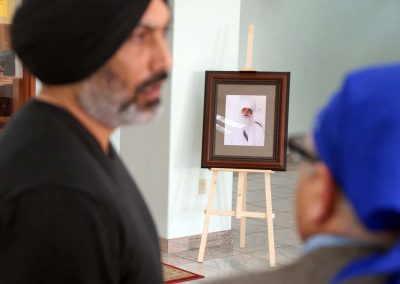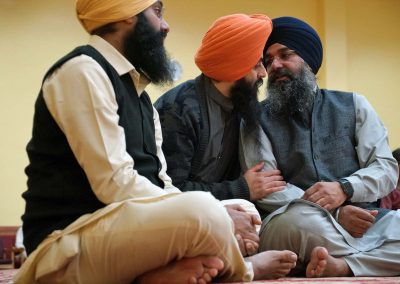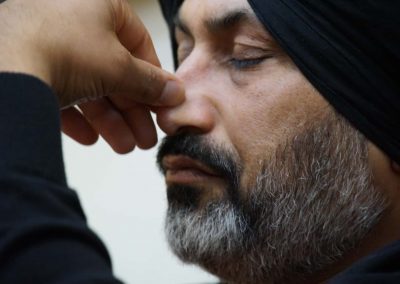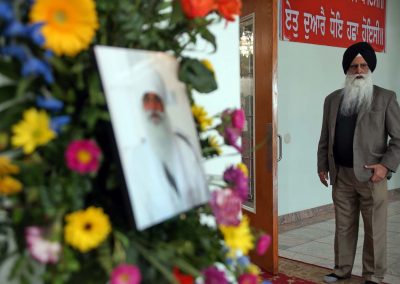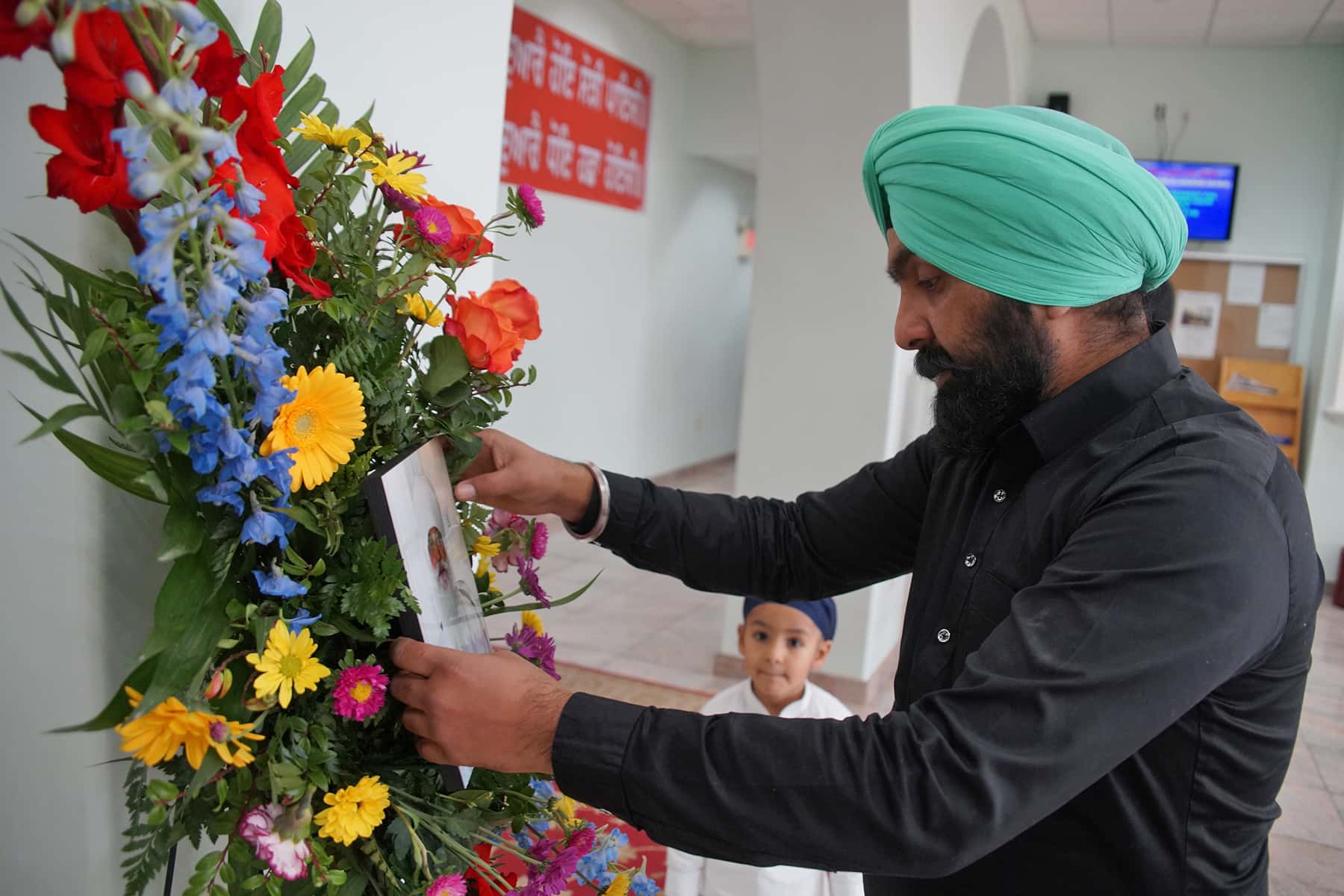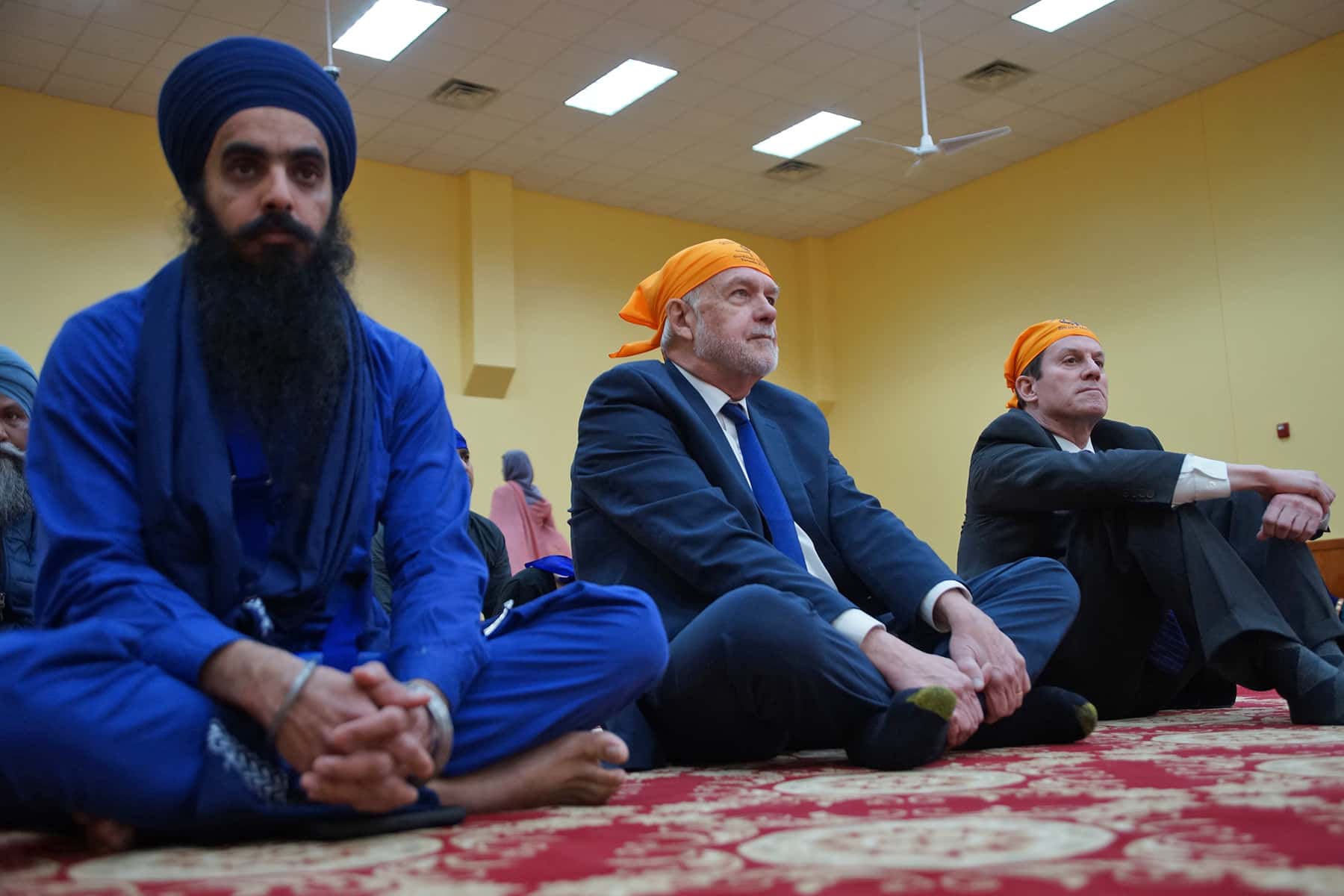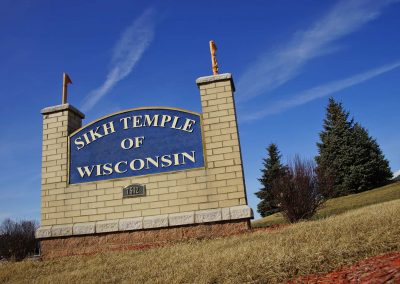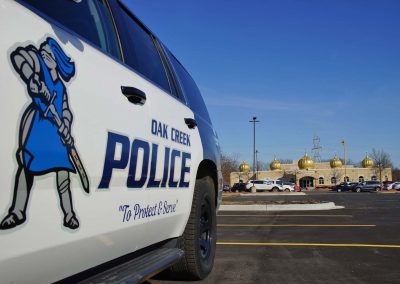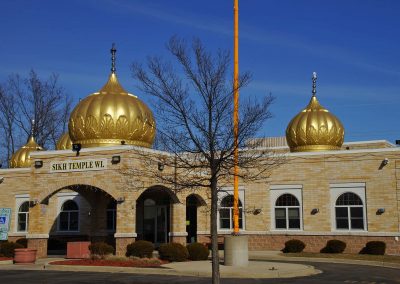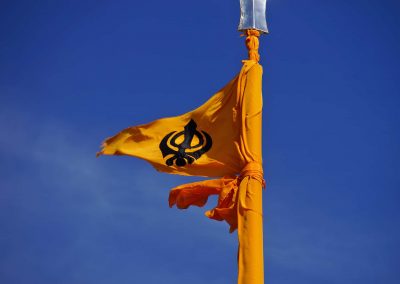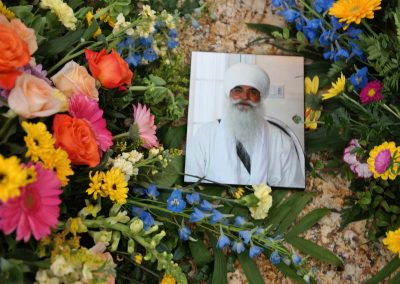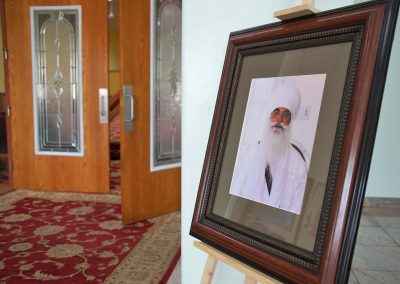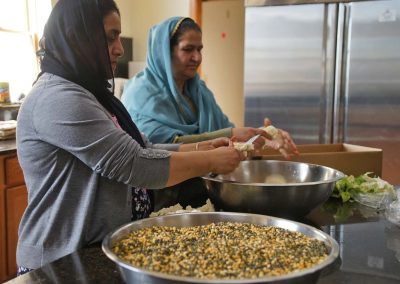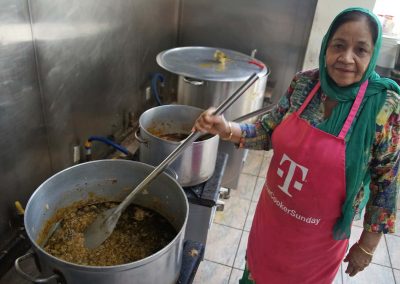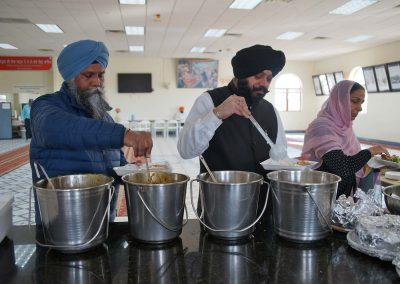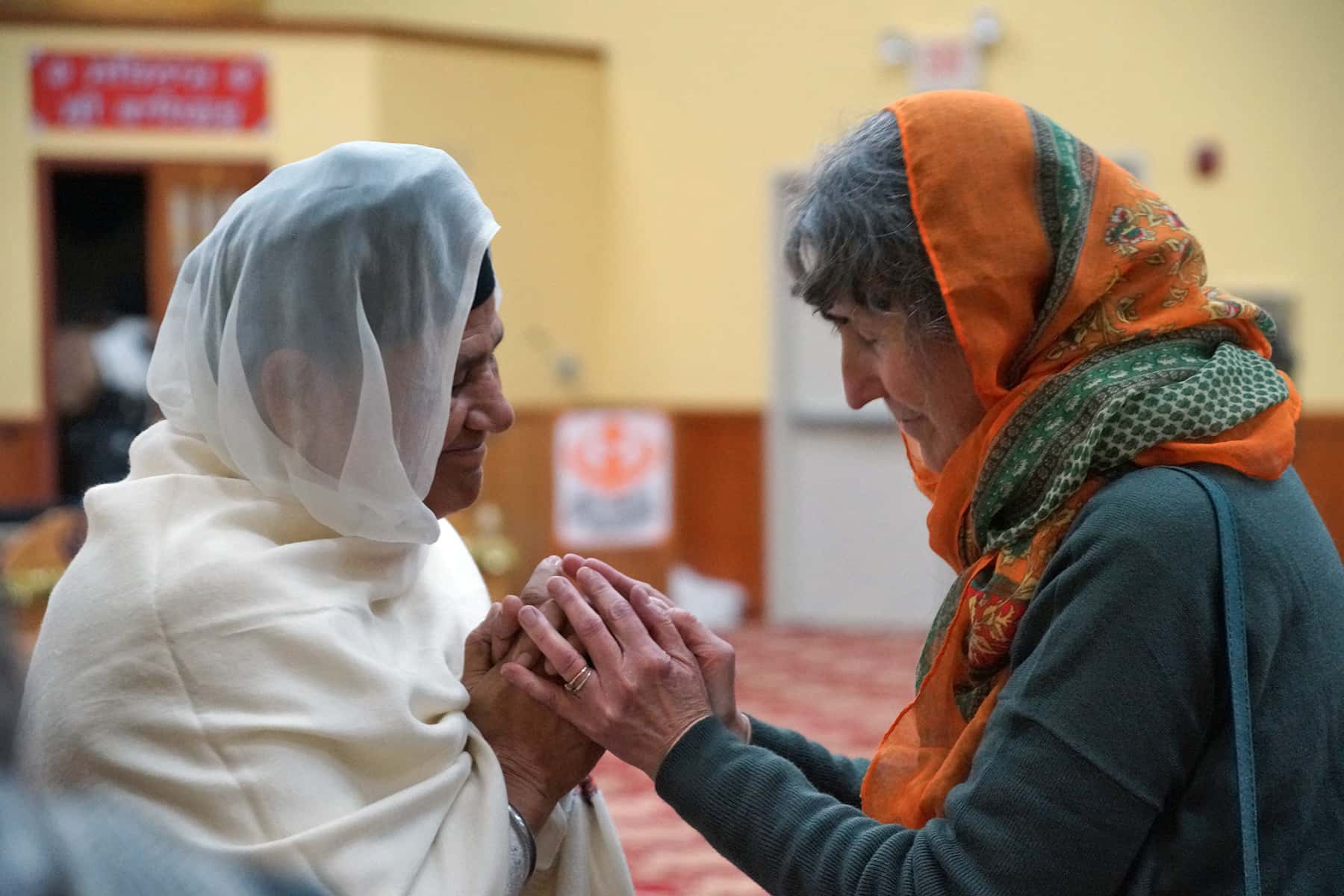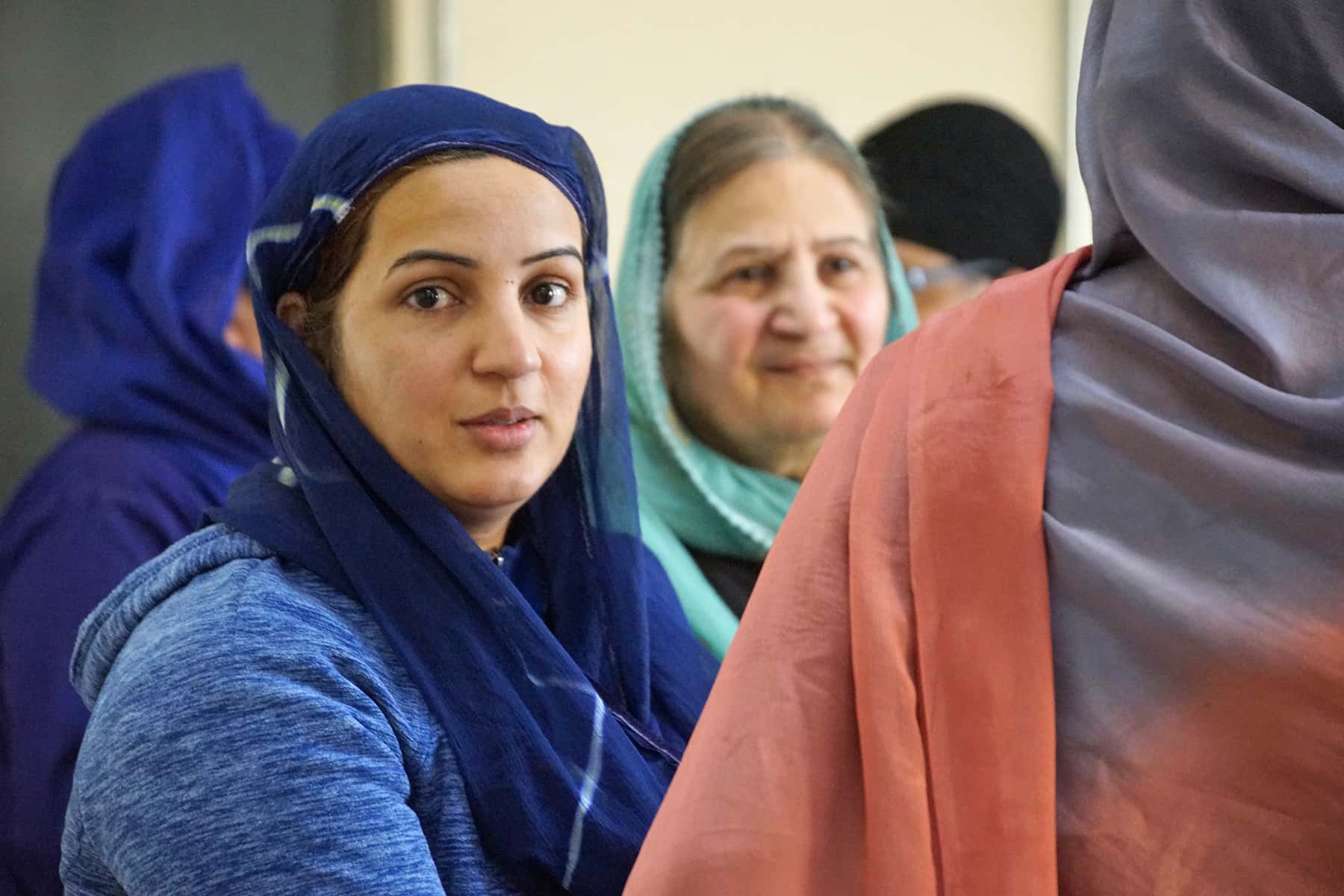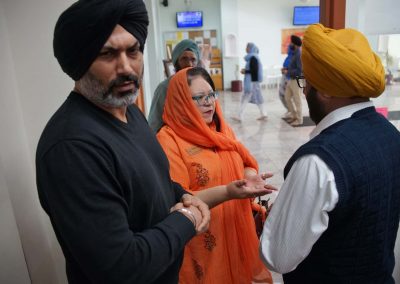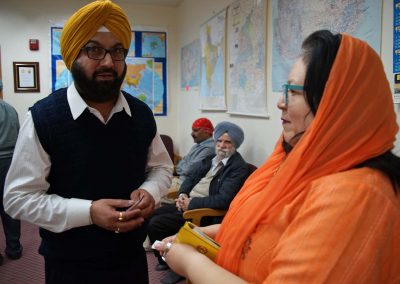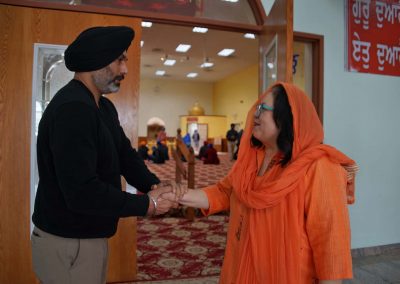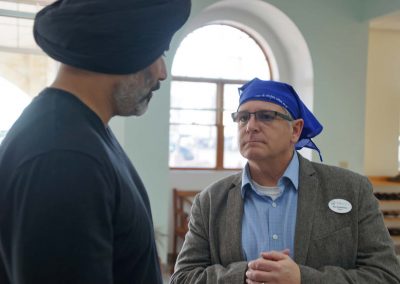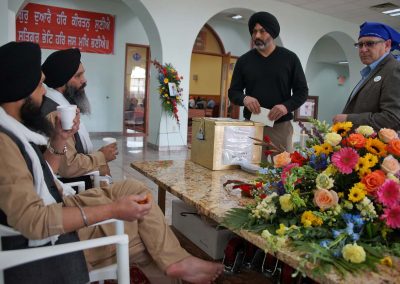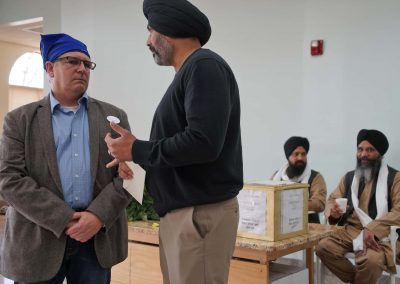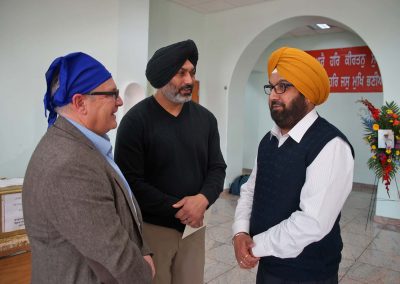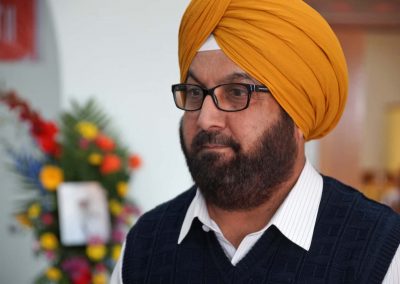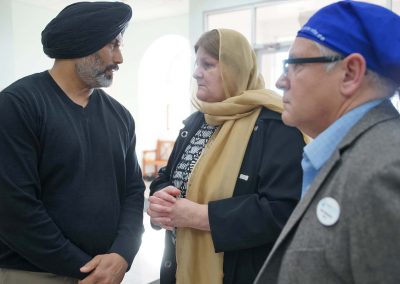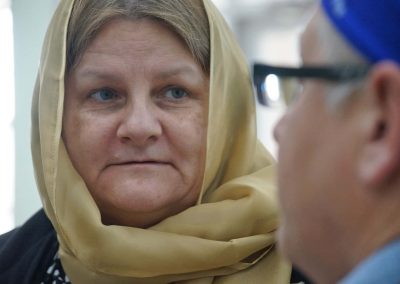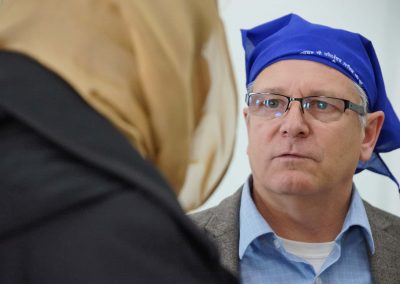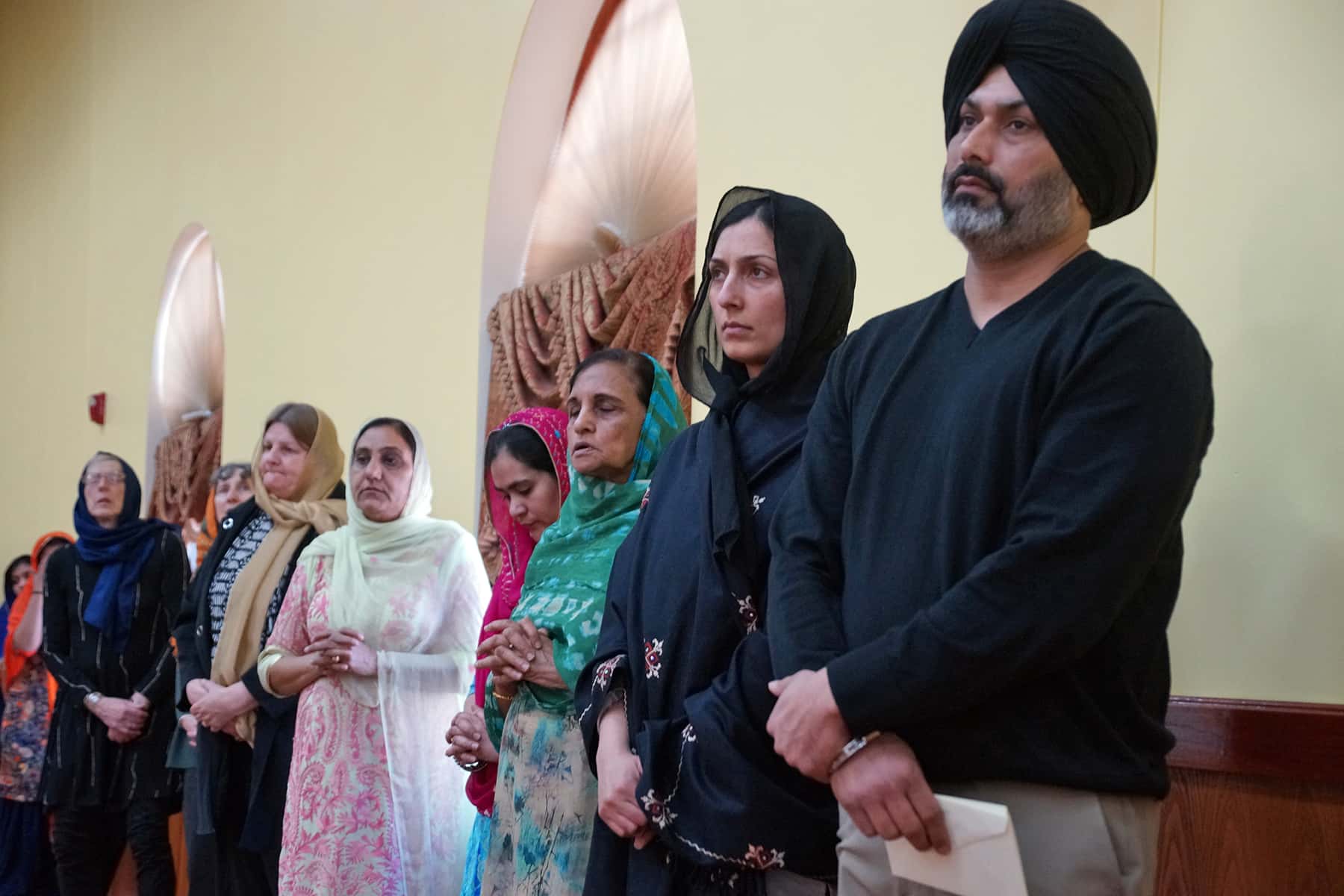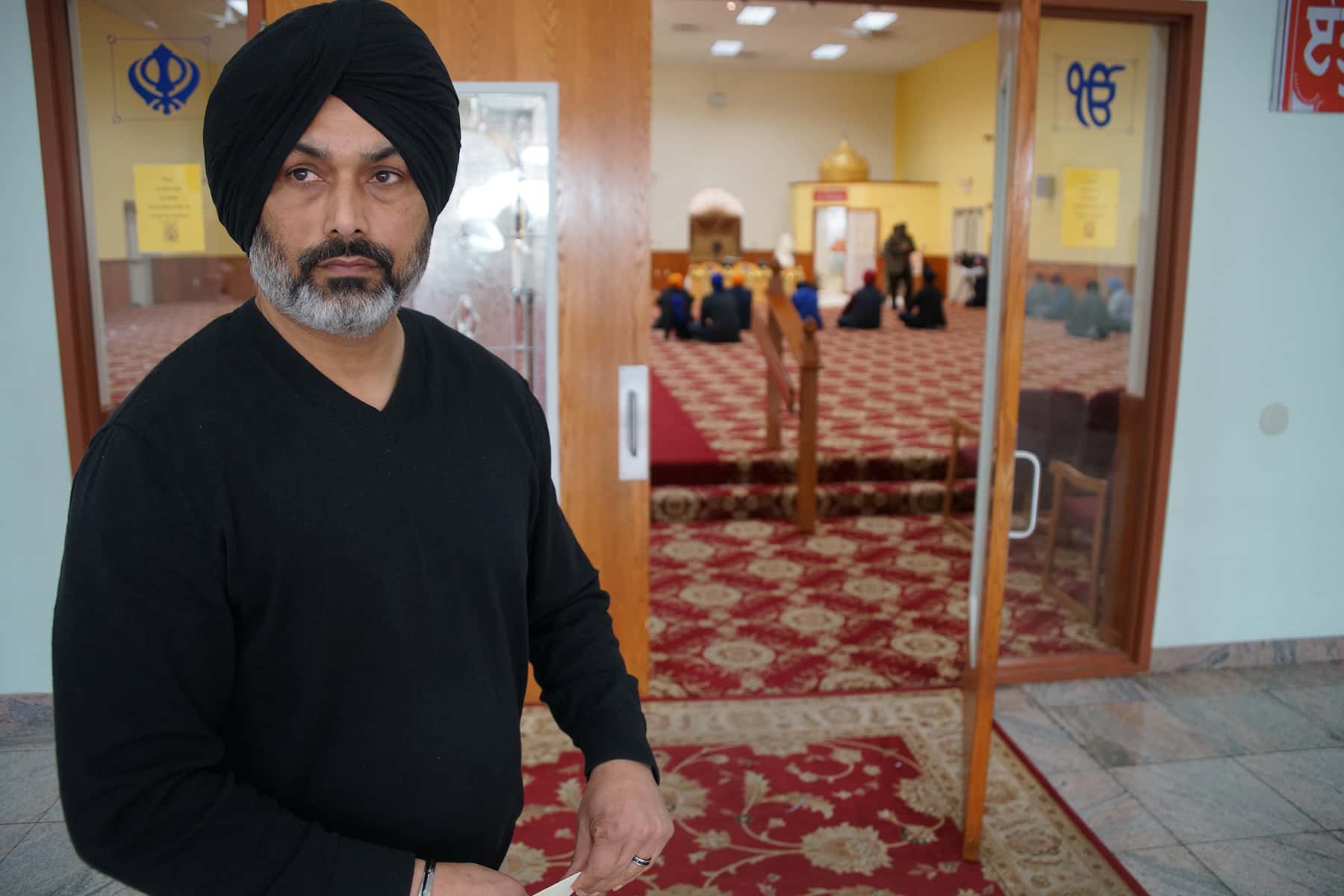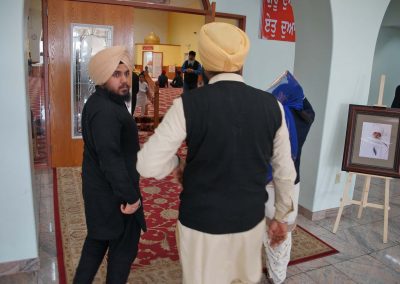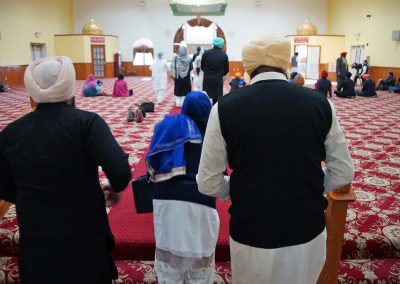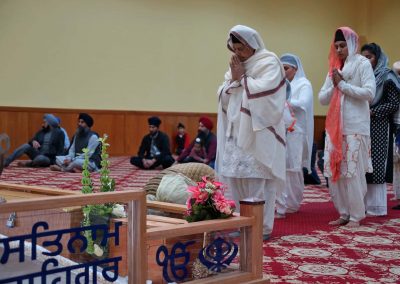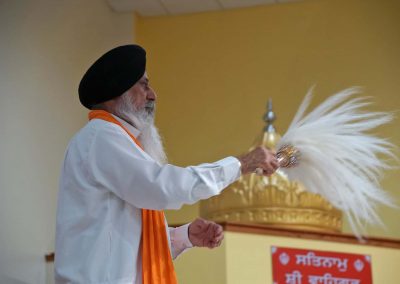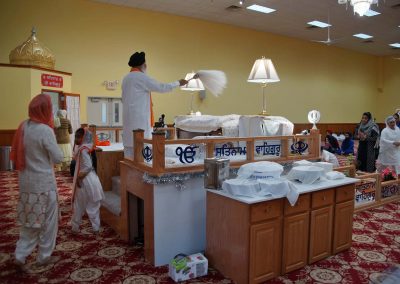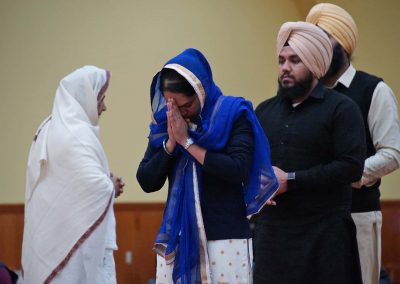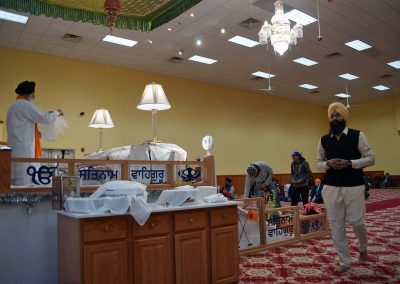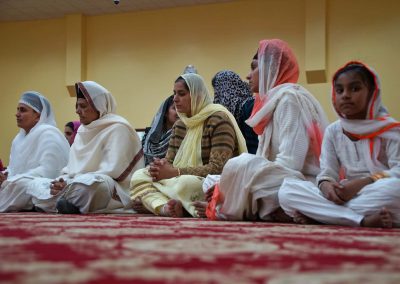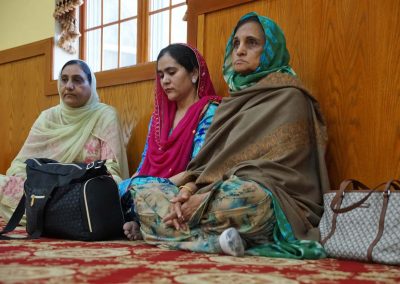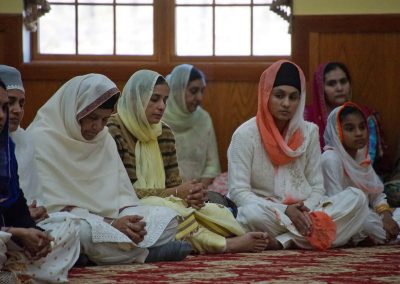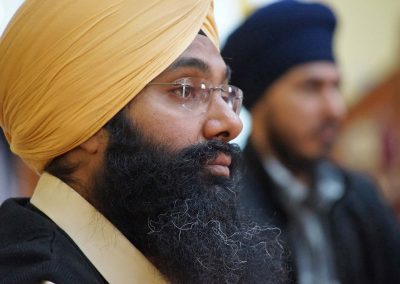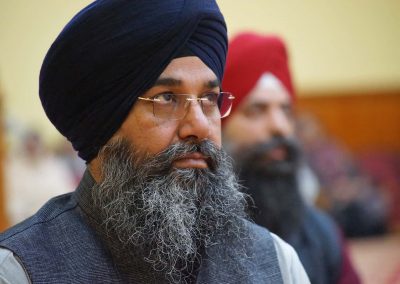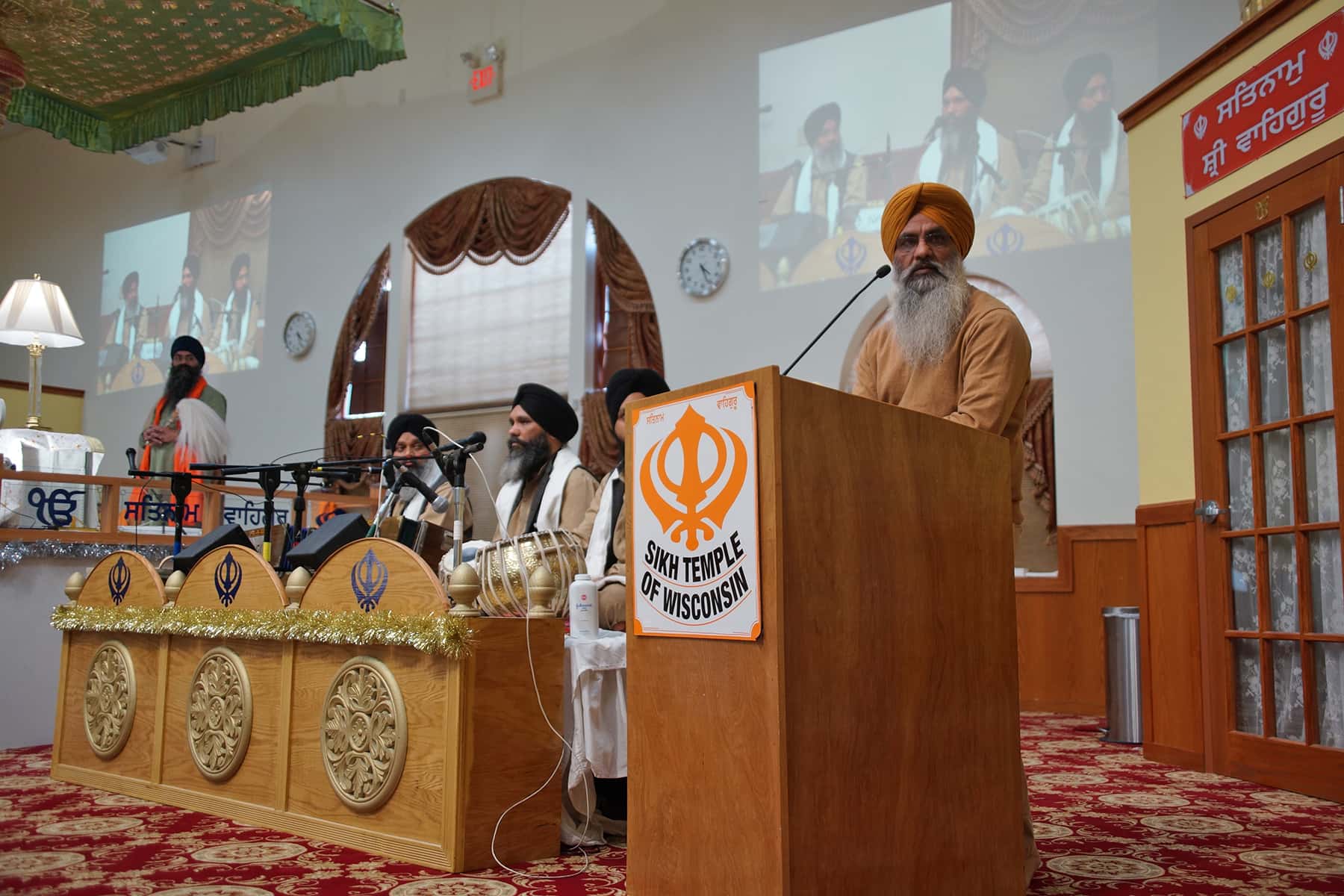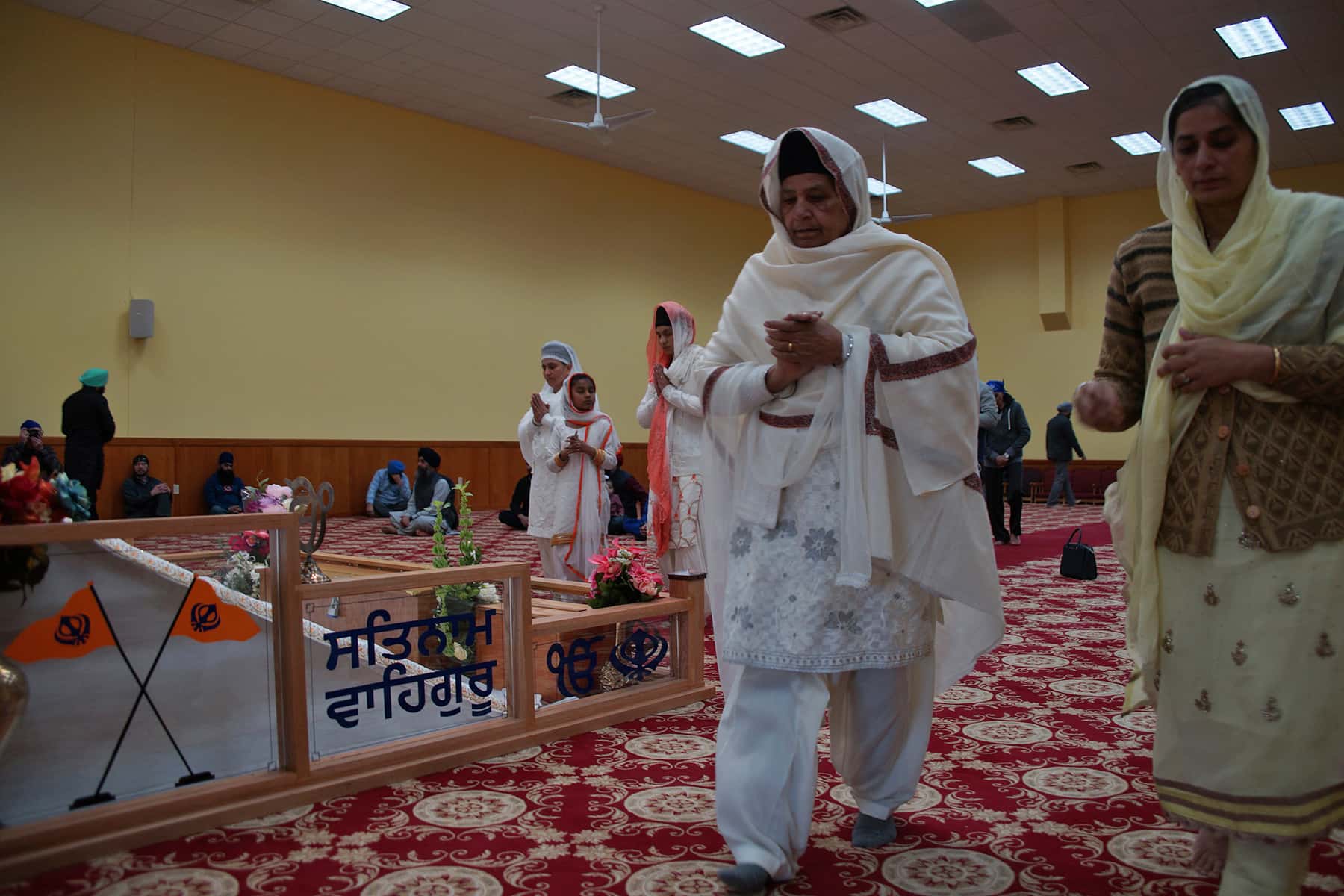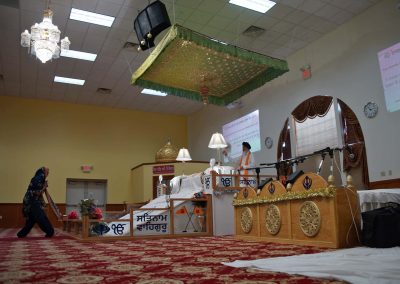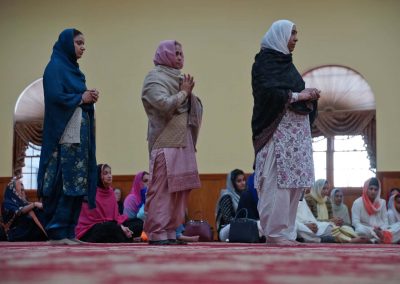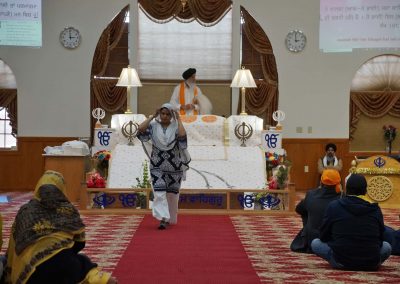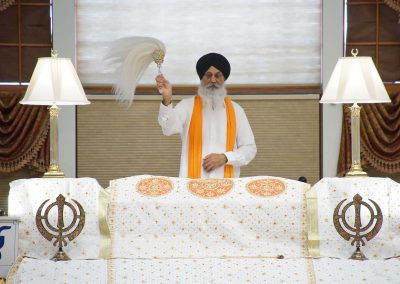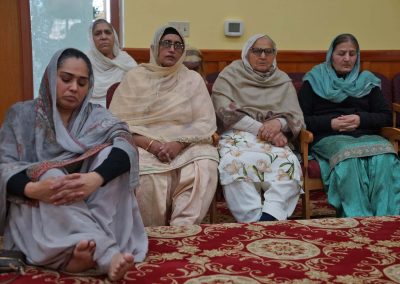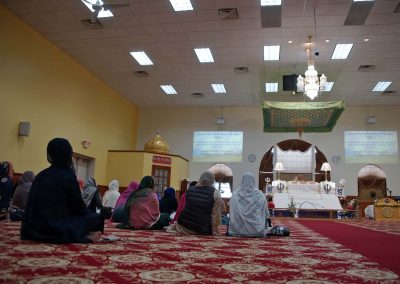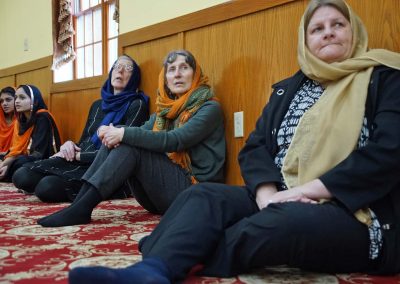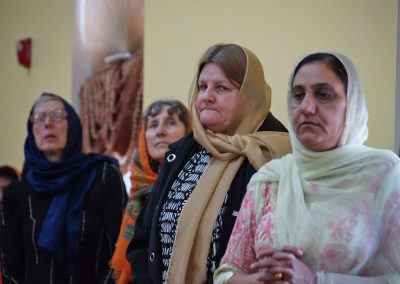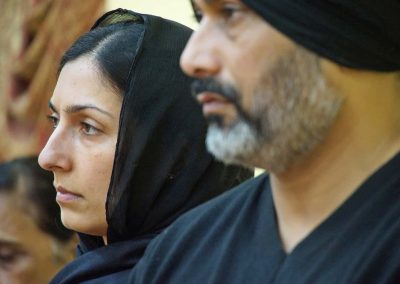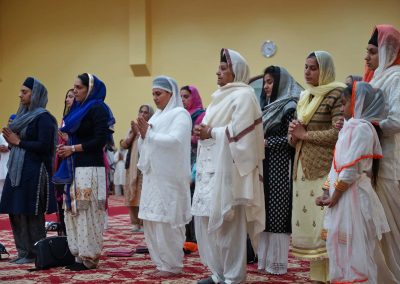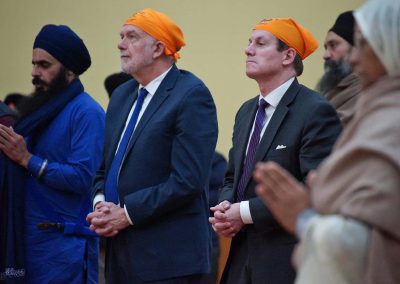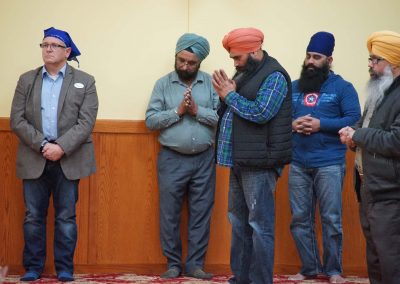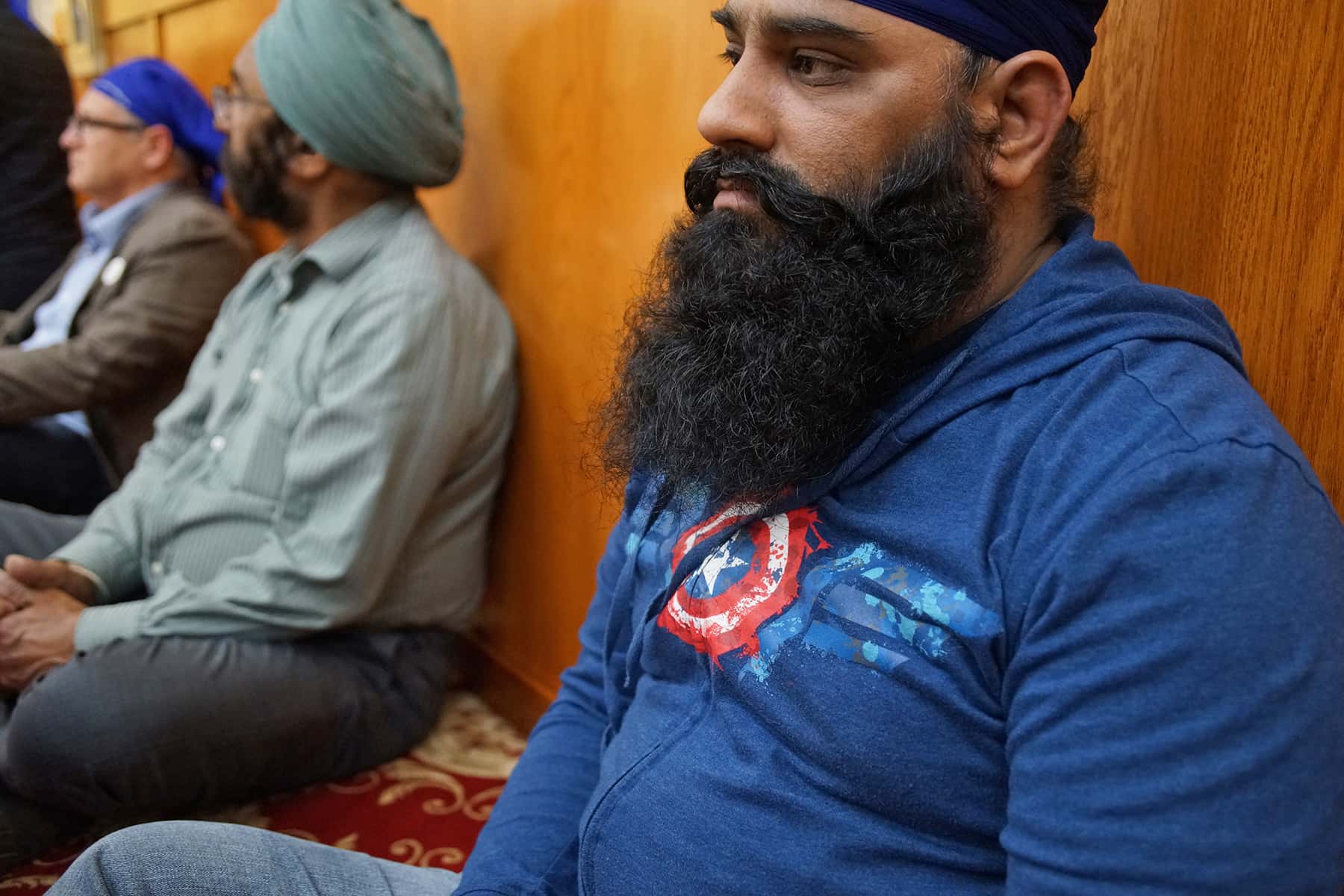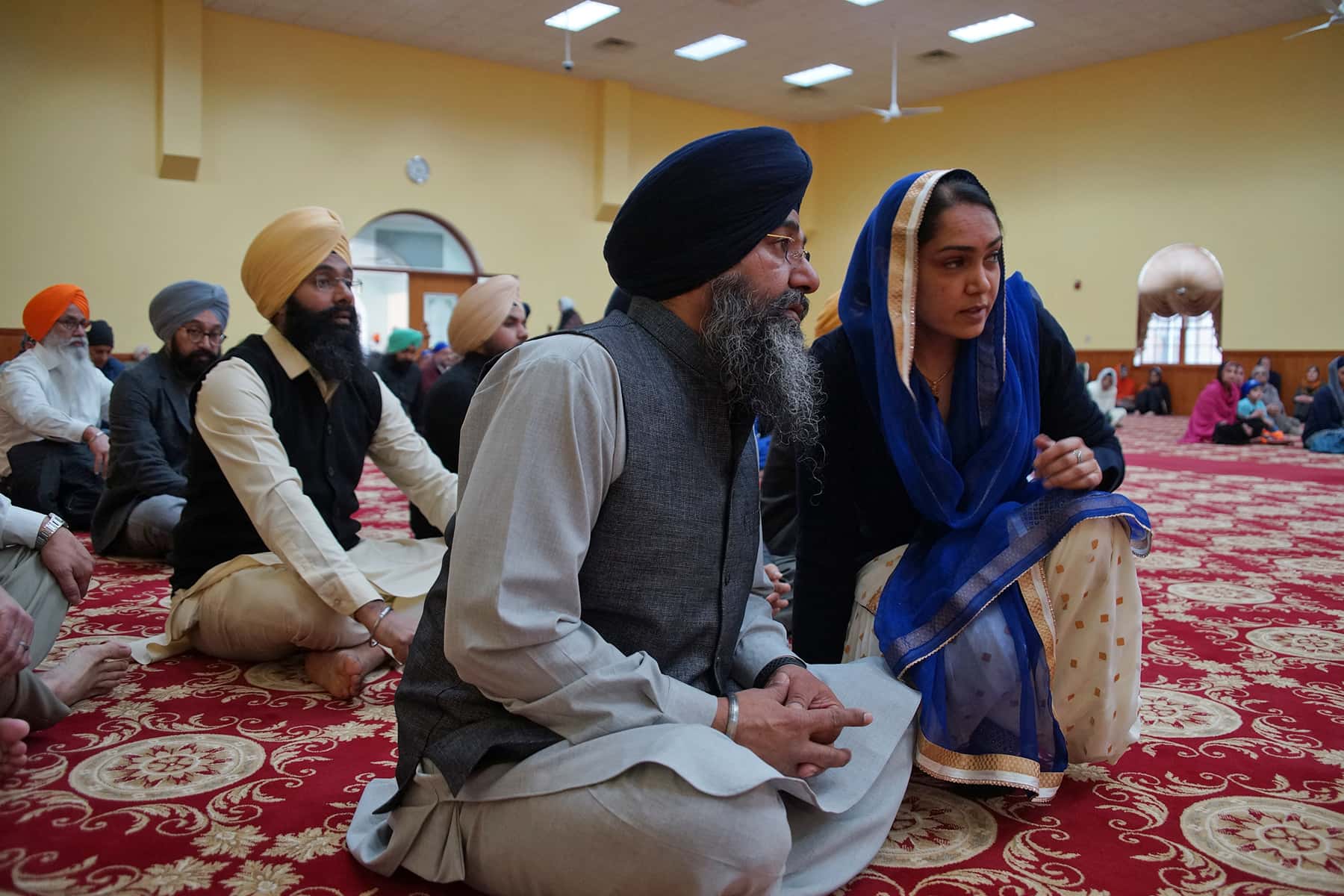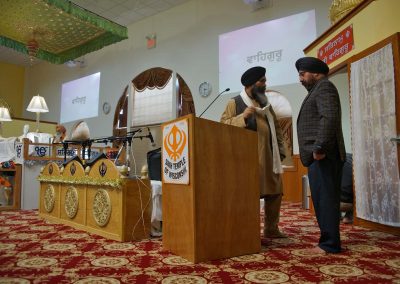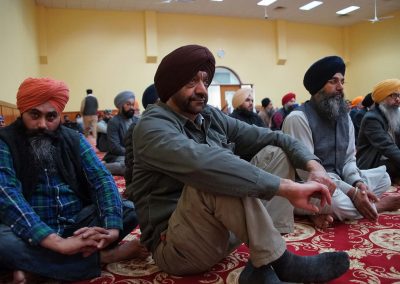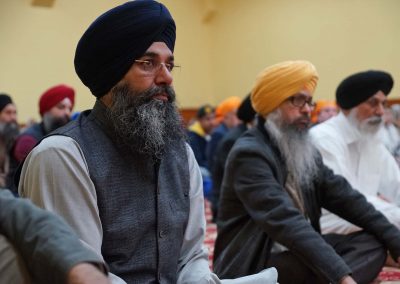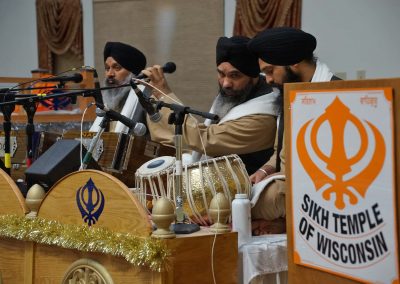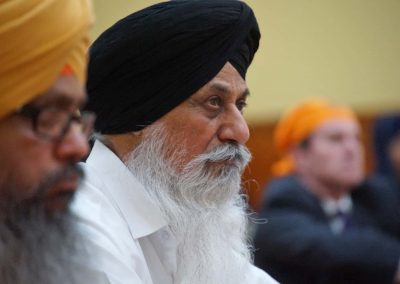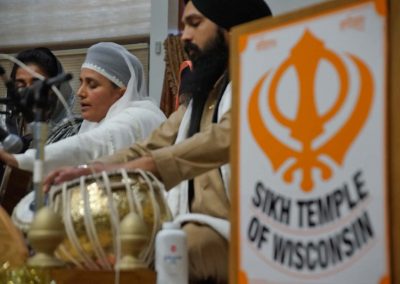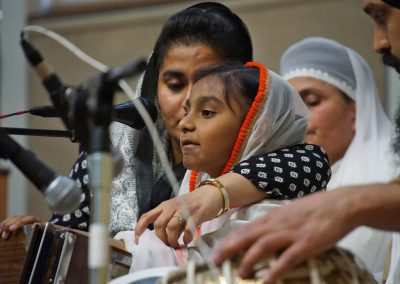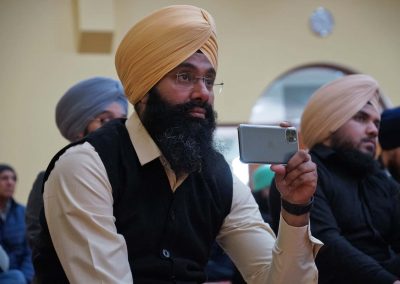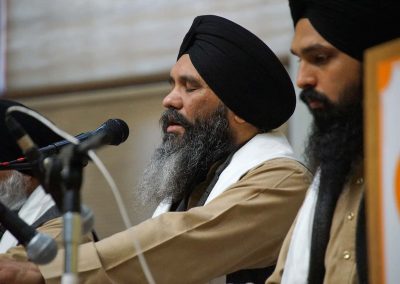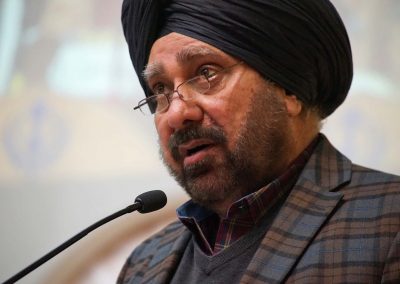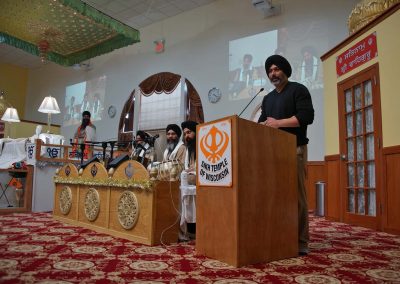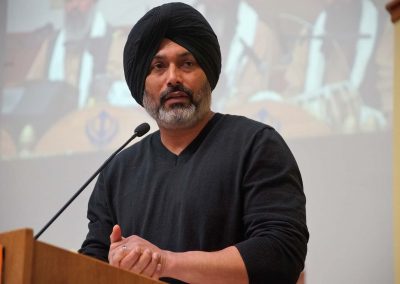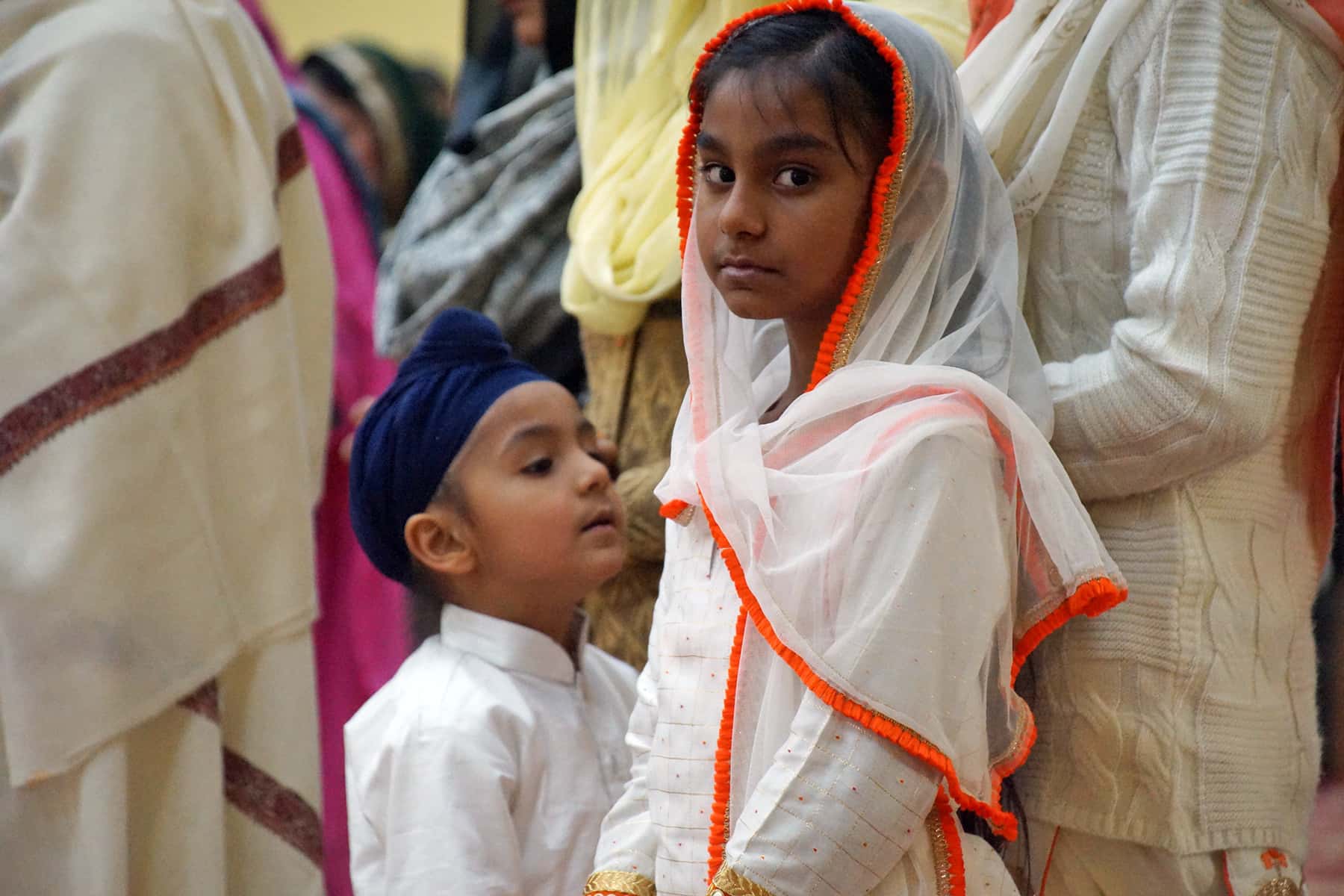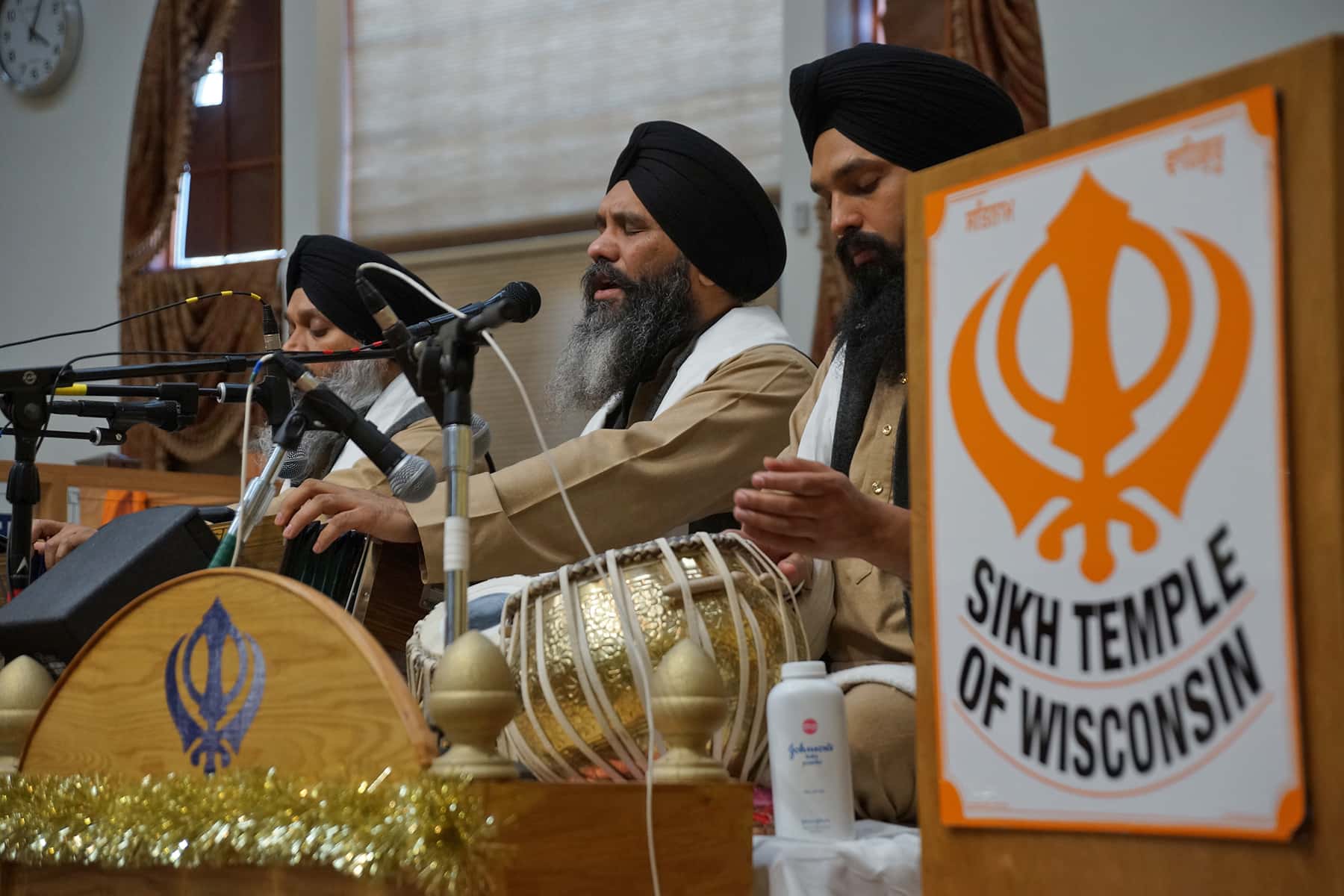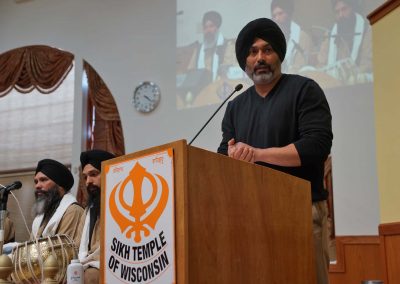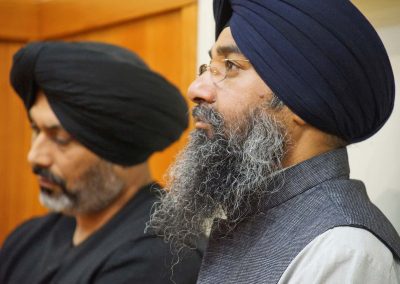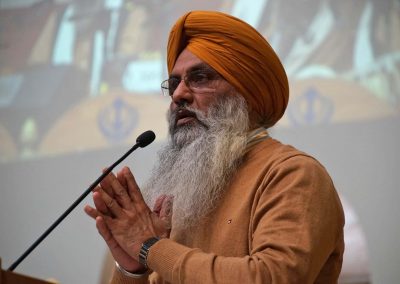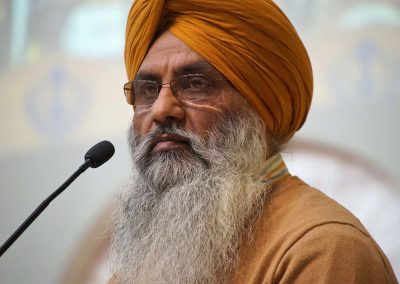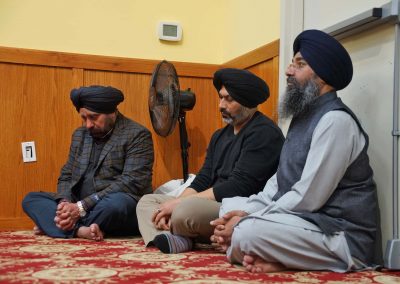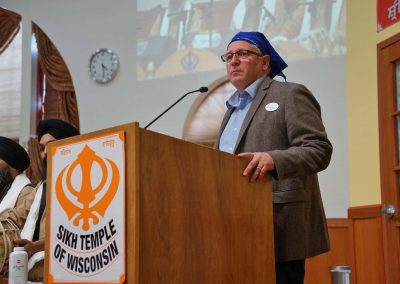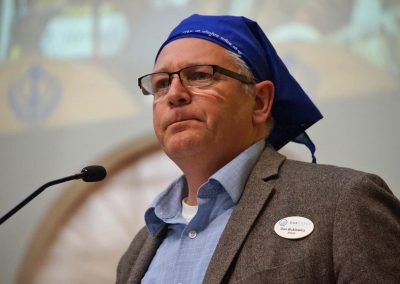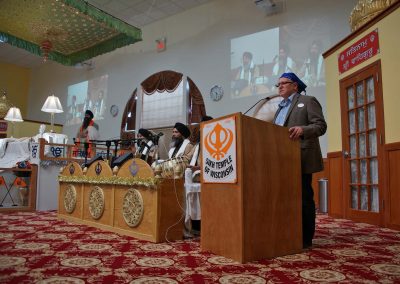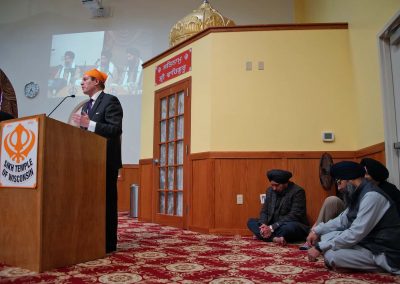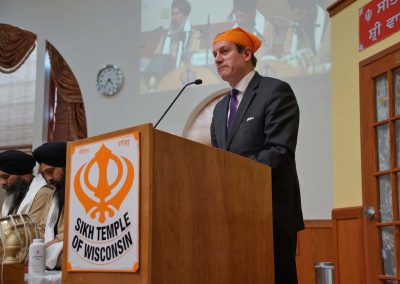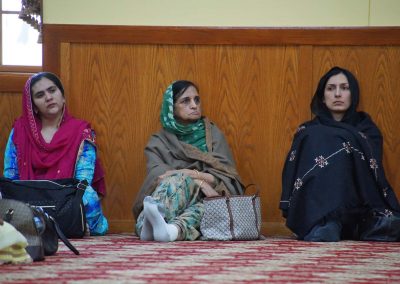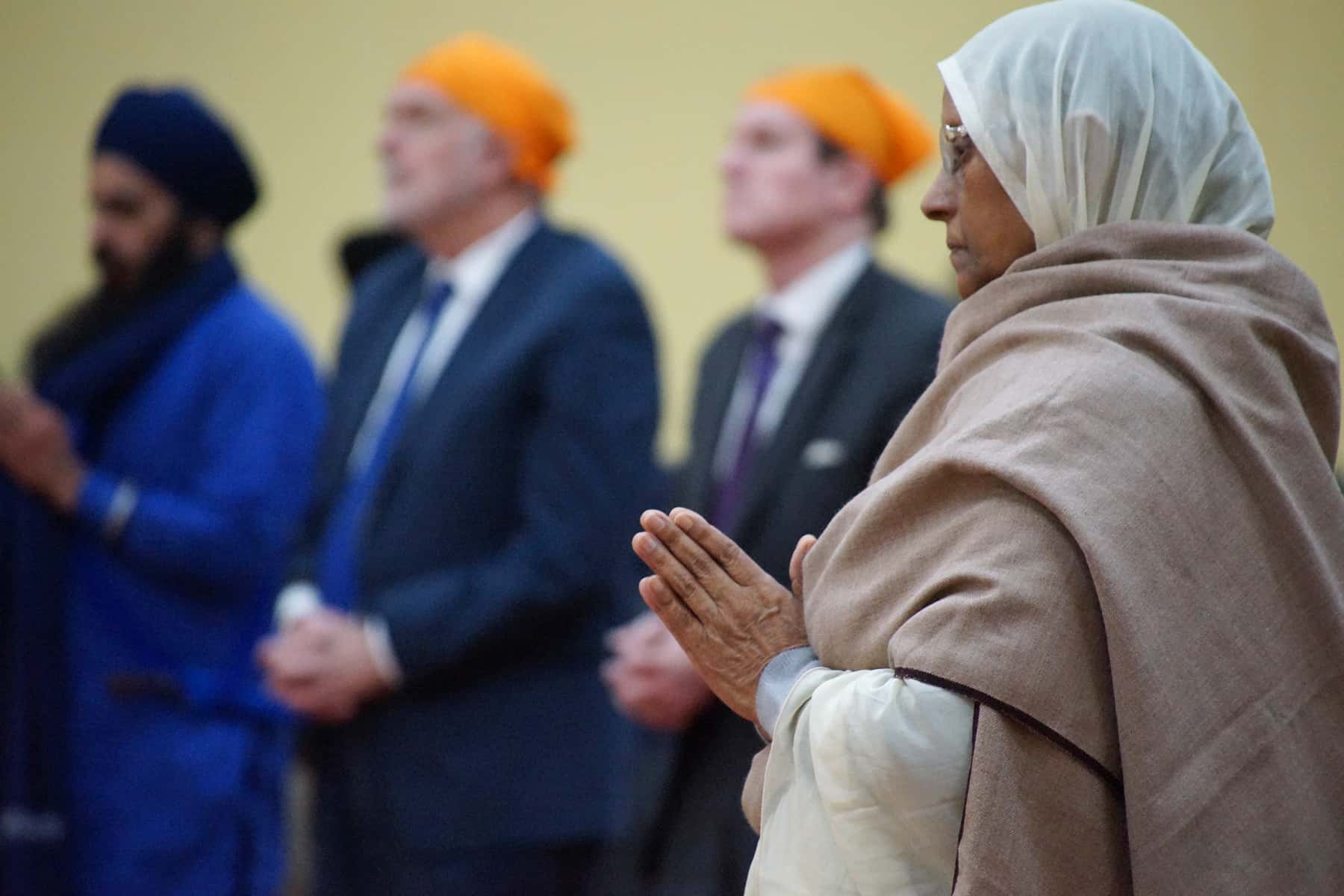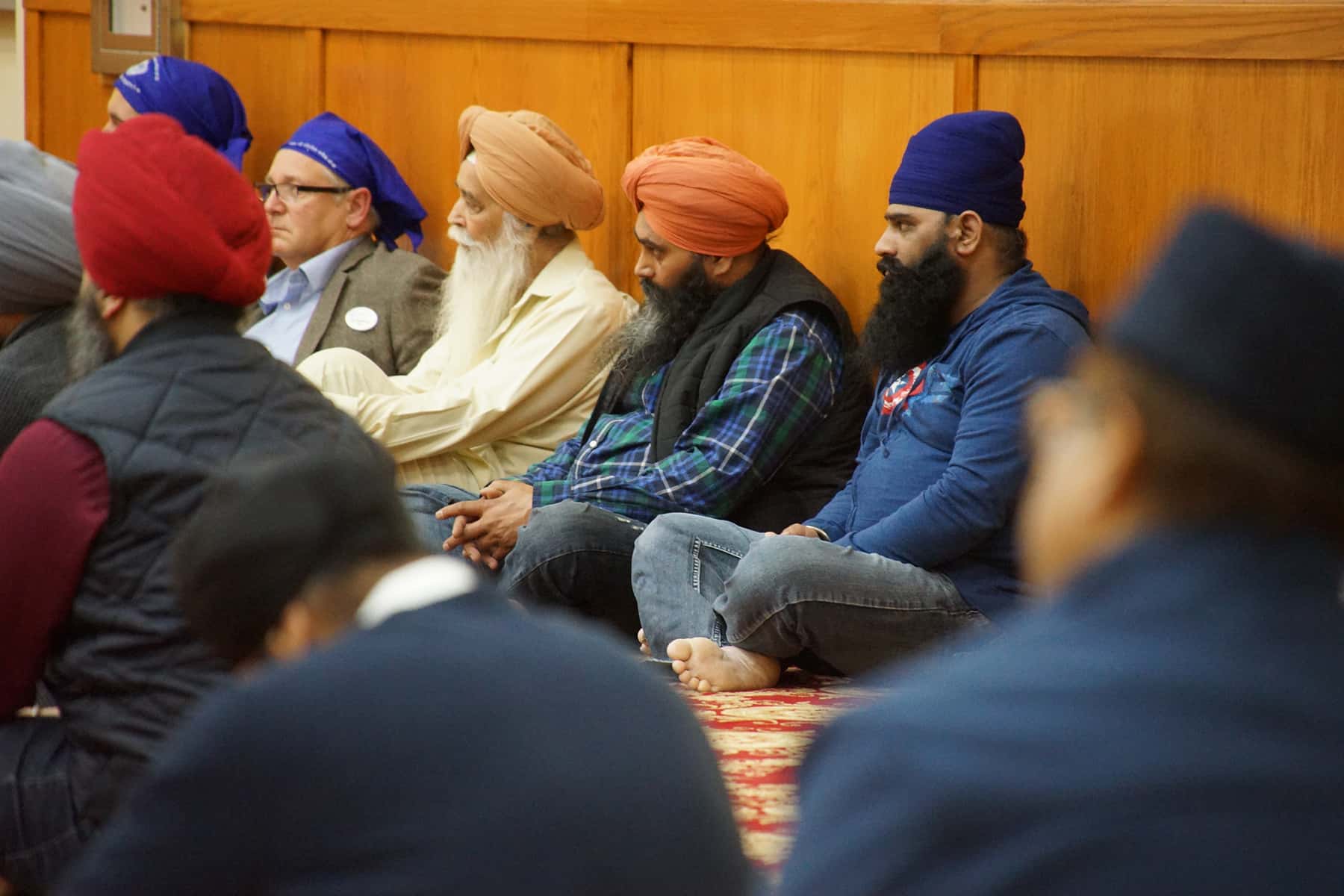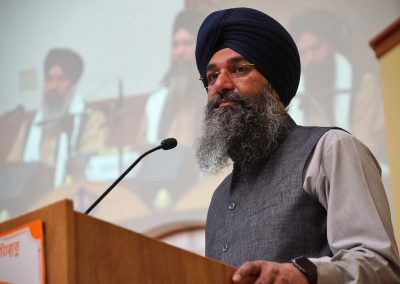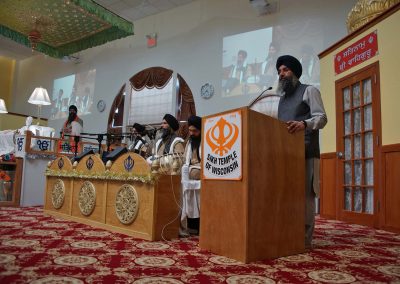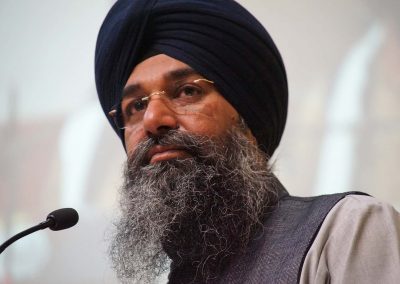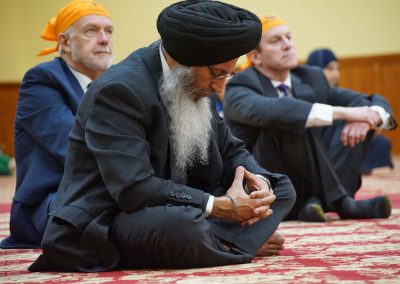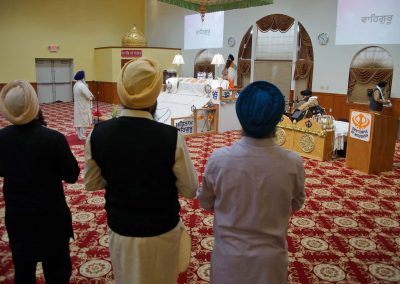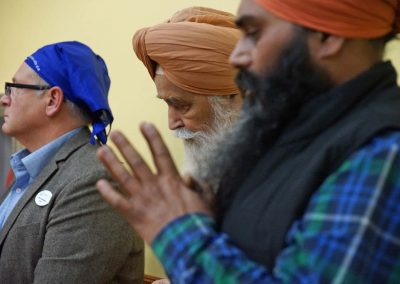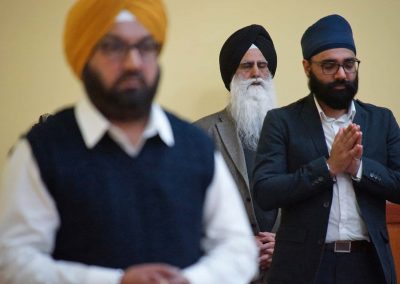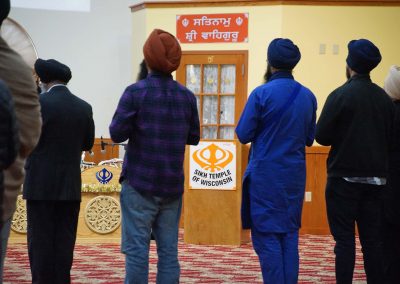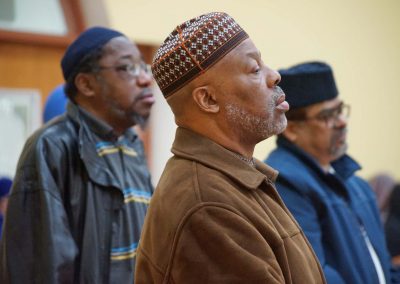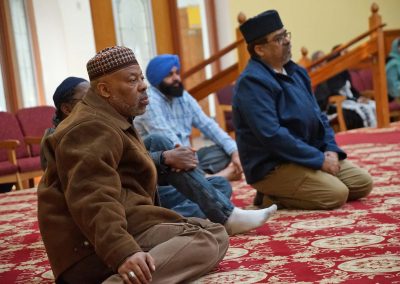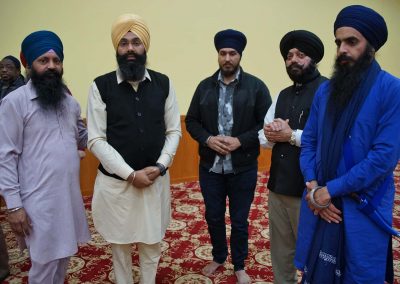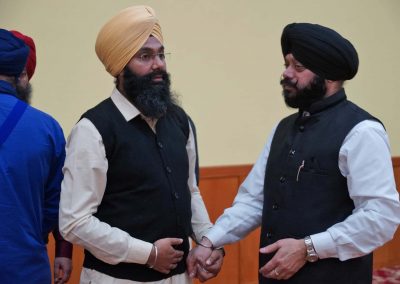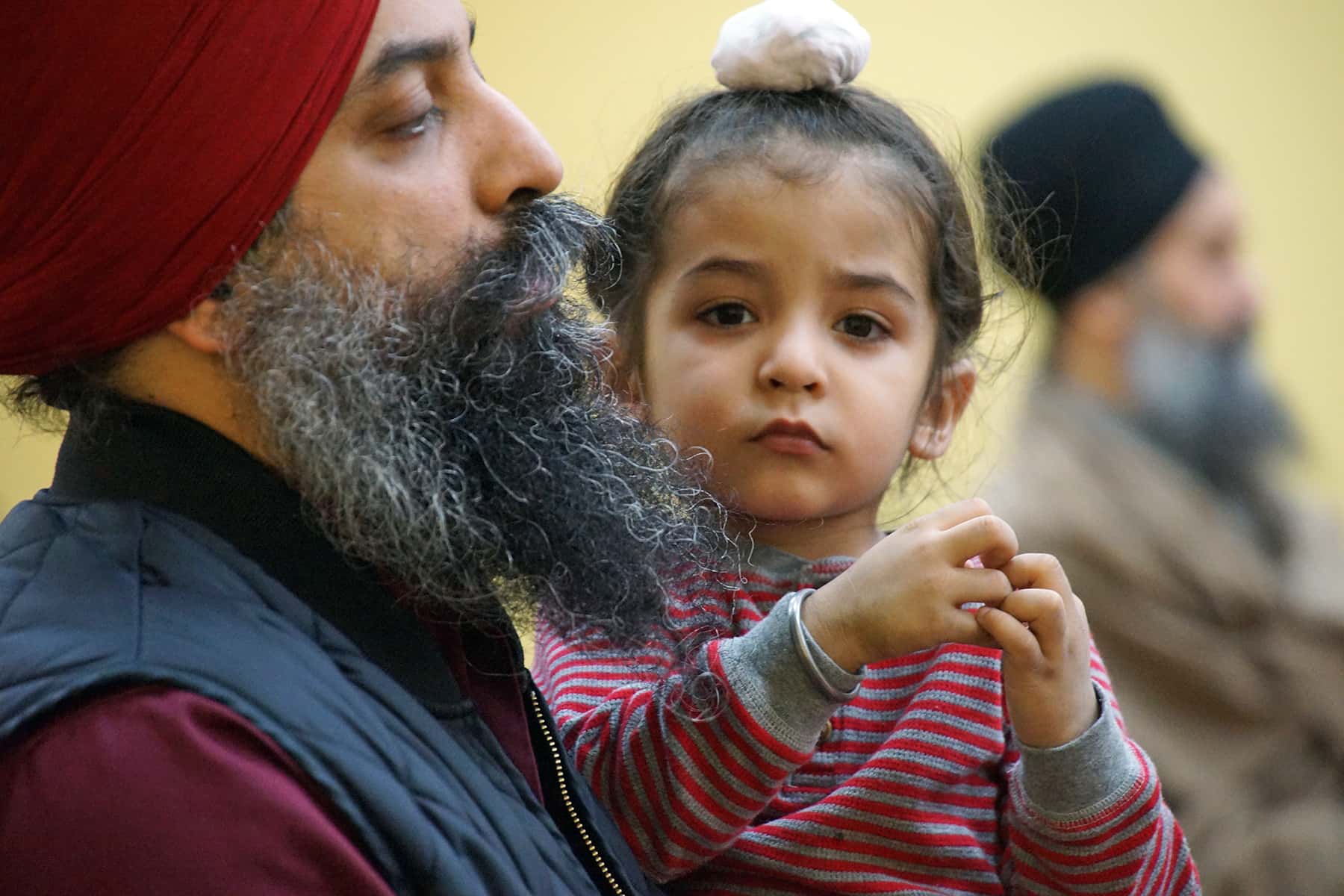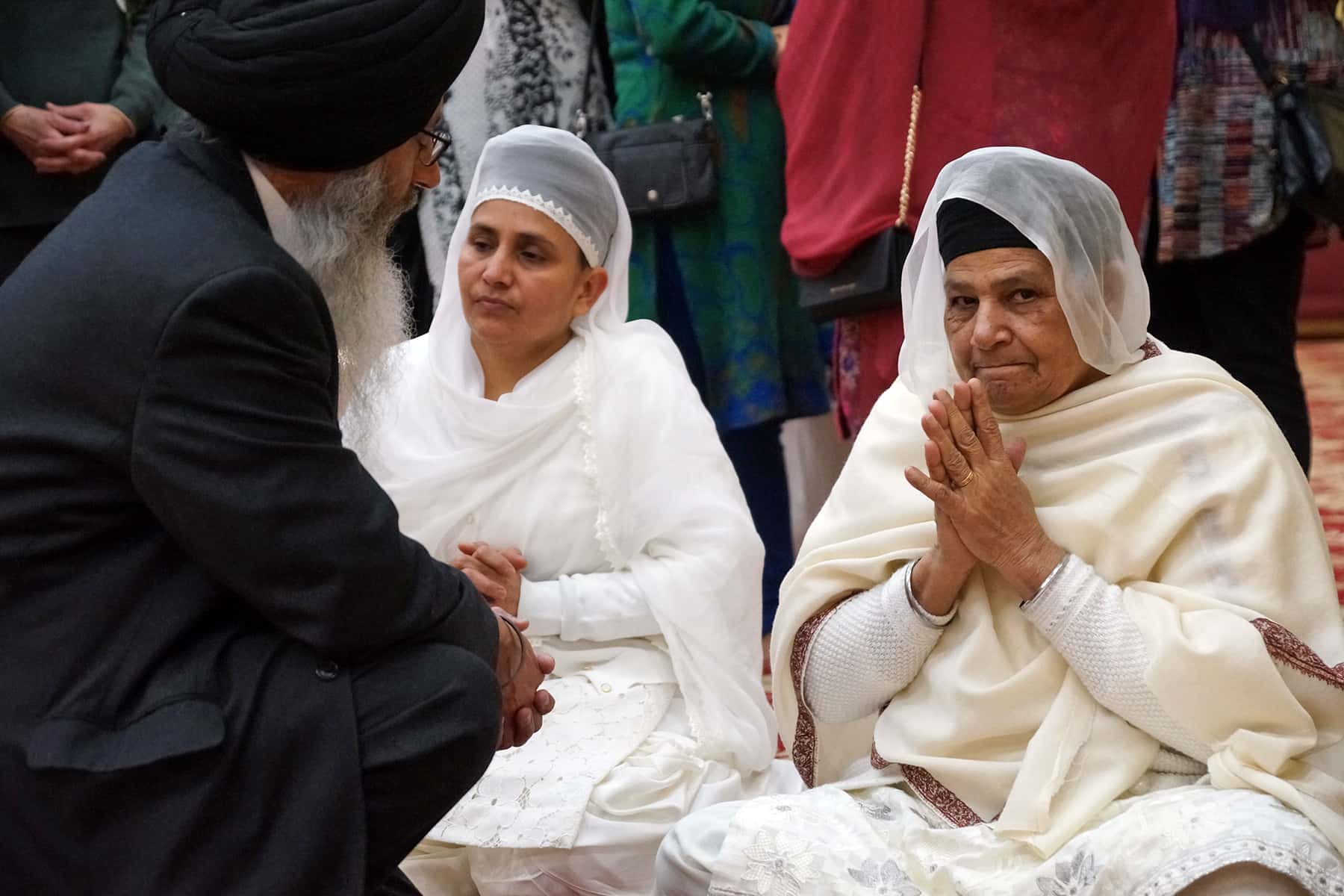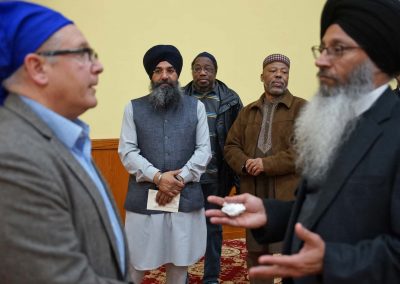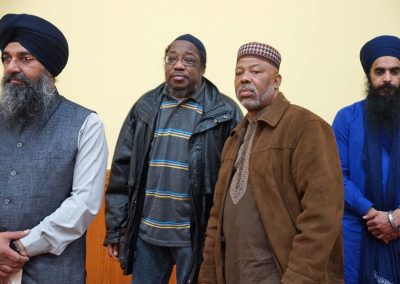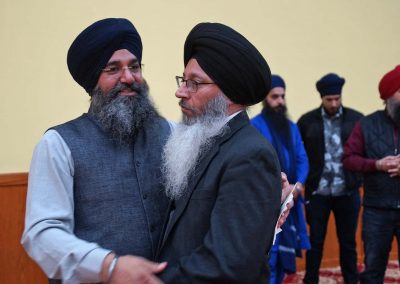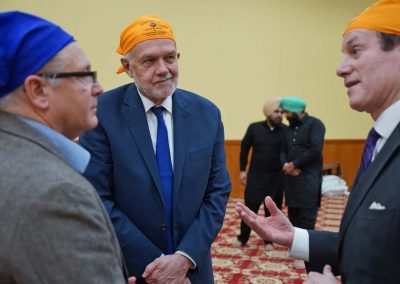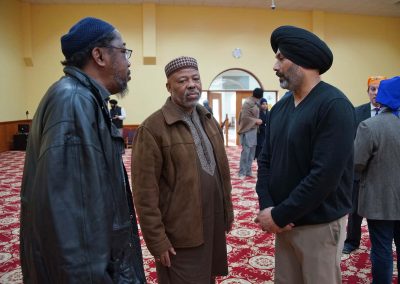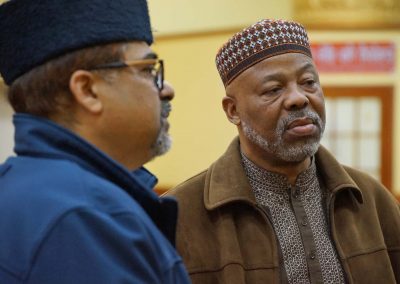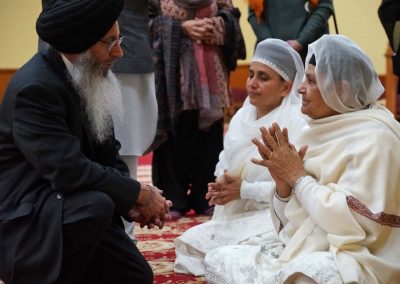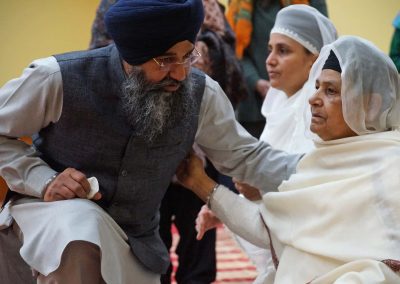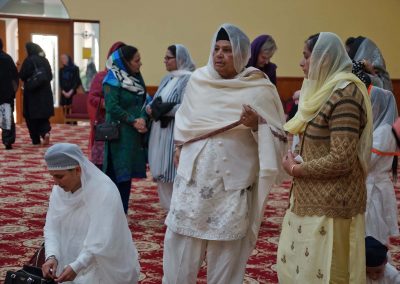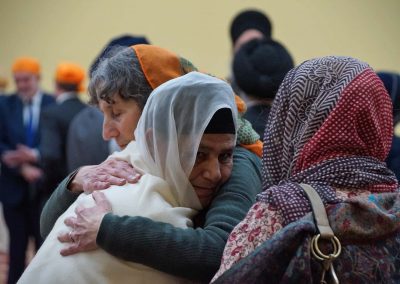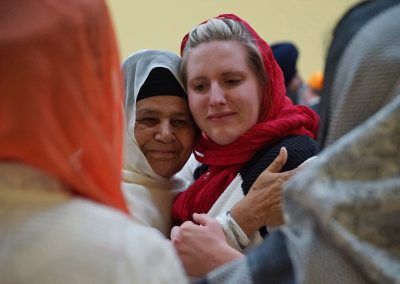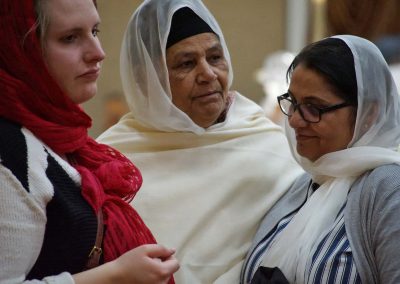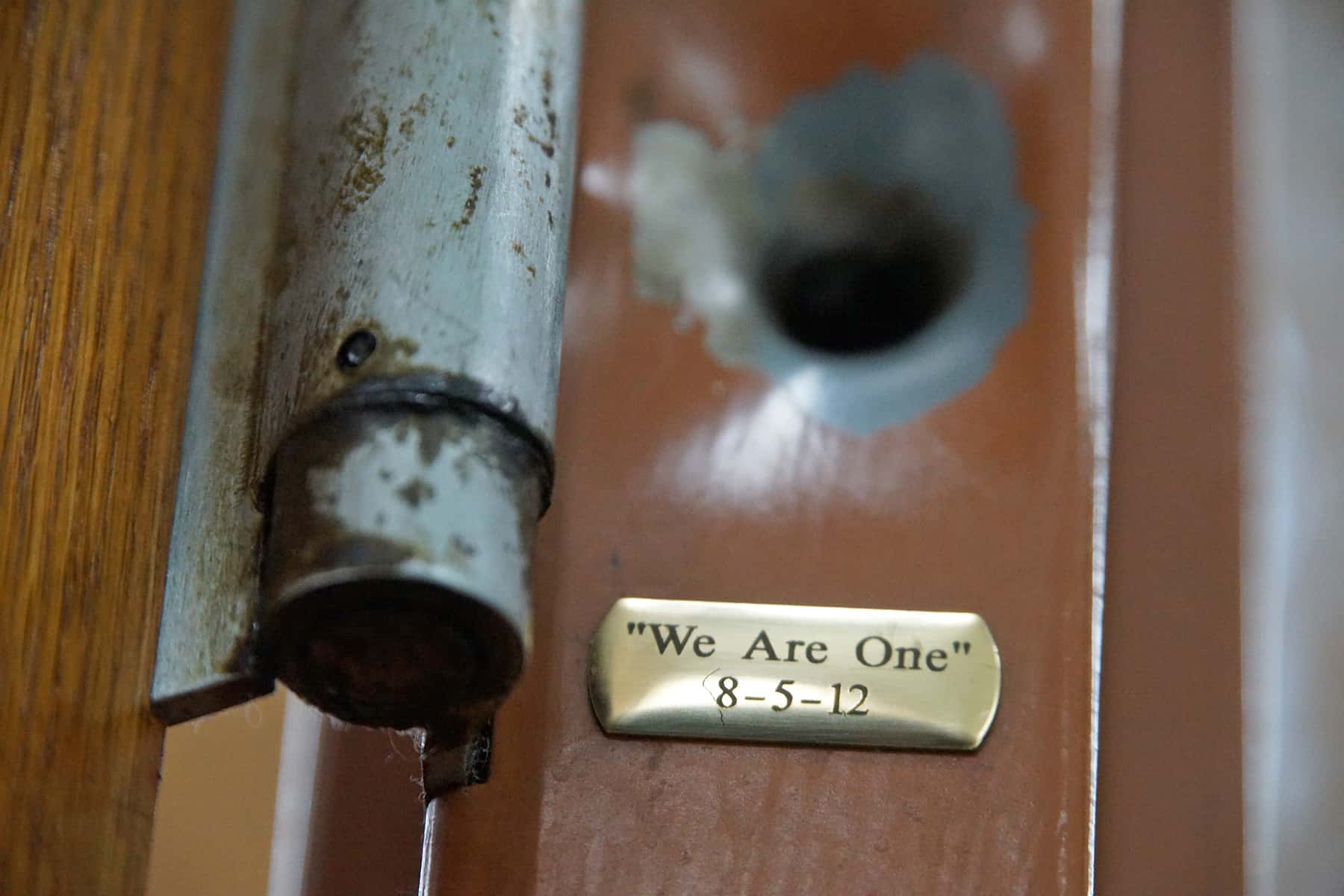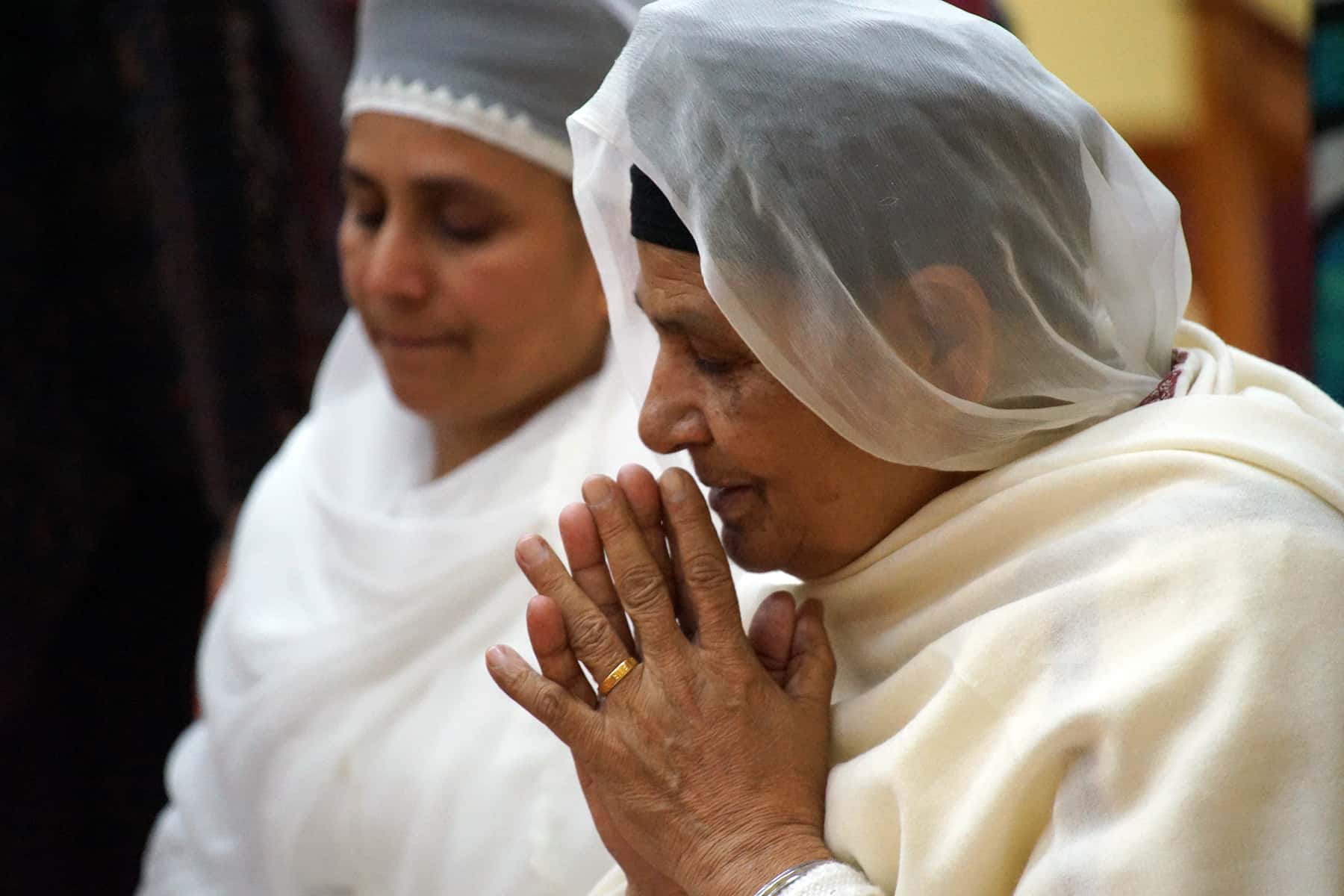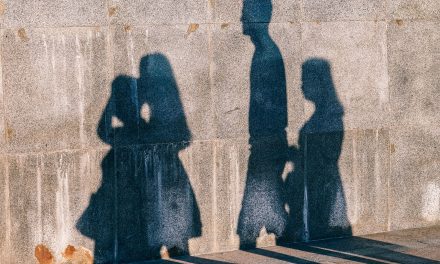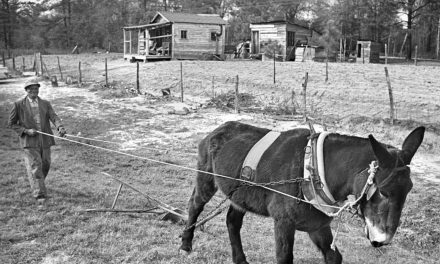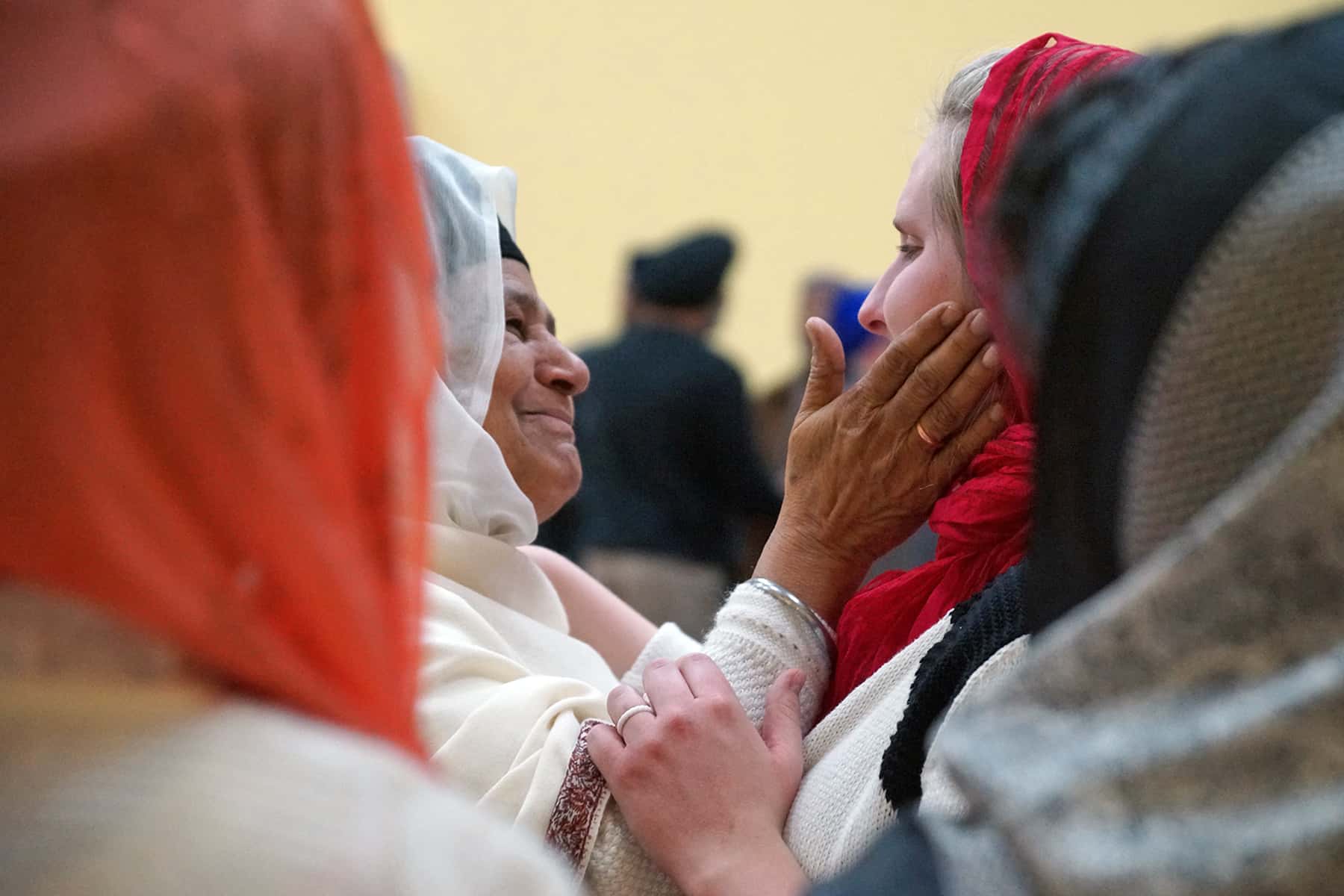
Members of the Oak Creek community gathered on March 7 to remember the last victim of the August 5, 2012 Sikh Temple of Wisconsin shooting, who passed away due to complications from his original gunshot wound.
Baba Punjab Singh was paralyzed from being shot in the head, resulting from a damaged spinal cord when the bullet passed through his jaw. He remained hospitalized from the injury for the past 90 months. He died on March 2, 2020 at the age of 72. His funeral was held prior to the memorial service at the Sikh Temple of Wisconsin.
“Punjab’s unique influence as a humble leader and devout religious teacher will be sorely missed,” said United States Senator Tammy Baldwin in a letter to the Singh family. “He will be forever remembered for the lessons he shared and the many lives touched. I can’t begin to imagine the difficulty your family has experienced as a result of the horrific tragedy at the Sikh temple seven years ago. I hope that you find comfort in your warm memories of Punjab as a husband and father.”
The August 5 attack on the Oak Creek gurdwara, a Sikh house of worship, by a White Supremacist with Neo-Nazi ties left six worshipers dead and several injured. When the news media and community honored the victims who were killed by that domestic terrorist, Singh was often forgotten. He existed in a kind of memorial purgatory, not being dead but neither being fully alive.
His wife, Kulwant Kaur, and his sons, Raghvinder and Jaspreet Singh, and family endured many hardships over the years. Singh was left in a coma after the shooting, then suffered two strokes. As he fought to recover, Singh was able to respond with ‘yes’ or ‘no’ to questions by blinking his eyes. Infections, sores, and other complications developed as a result of being constantly bedridden for such a long time. His family took turns visiting and tending to him daily for seven and a half years, participating in his physical therapy and also whispering prayers in his ear.
“I never had the privilege of meeting him, but I did meet his therapist at one of the anniversaries,” said Daniel Bukiewicz, Mayor of Oak Creek. “His therapist shared a story of how she was working with him and how they communicate. What left an impression on me was how his spirit, his courage, and his faith radiated from his body.”
The physical therapist had explained how she better understood Sikh culture because of her strong connection with the man. When he learned that Singh has passed, his thoughts went back to that conversation. Mayor Bukiewic said that Singh was special for how his faith could be seen even in his impaired condition, and that the community would be better off by following his example.
“Here was a man in a very compromised position that was able to make that kind of impression on her, which radiated to me,” added Bukiewicz. “I was able to experience his strength of that faith and that courage. I’m a healthy human being and even I can’t do that. And I thought, why can’t we all do that? So his loss really hits me right in the gut, just how powerful his love and faith was.”
Baba Punjab Singh was born on August 11, 1947 in a village named Dhurkot, near the Nankana Shaib District of Pakistan. His family were farmers, but soon after his birth they were forced to flee and relocate to Punjab, India due to the 1947 partition. After his religious education, Singh joined the Indian Army as a Sikhi preacher, and served during the Indo-Pakistani wars in 1965 and 1971. He taught about Sikhism’s philosophy and history for 19 years in the military, and lived by example as a “saint-solider.” He retired early from his military service to focus on his family.
Singh, who was known as “Baba ji,” was devout in his faith and observance to remember God, and believed education to be a powerful weapon that could change lives. Many people shared their stories of how Baba ji lived his life as an expression of compassion and generosity.
“Honesty, sincerity, simplicity, humility, pure generosity, absence of vanity, readiness to serve others – qualities which are within easy reach of every soul – are the foundation of one’s spiritual life,” wrote Nelson Mandela. While it’s true these qualities are within all, the rare few realize and live it. I believe Baba ji lived up to these and other qualities. – Jasvir Kaur
Singh’s eldest son spoke on behalf of the family at the memorial gathering. He wanted to honor the other lives lost on that day in August, and offered a reminder that toxic hate still plagues the country. He also wanted his father to be celebrated for the values, inspired by Sikhi, that he exemplified every day: love, equality, humility, eternal optimism, and service to others.
“Baba ji’s capacity for love and optimism was unchanged by the heinous attack, as well as the life-altering injuries he sustained,” said Raghuvinder Singh. “Even when I regularly visited him in the hospital after his paralysis, I would ask him: ‘Are you living in Chardi Kala,’ the Sikh spirit of eternal optimism? Each time, without fail, he would blink twice to say ‘yes’ His resilience embodied the greater Sikh community’s response in the wake of the Oak Creek tragedy, and it was one of the many lessons he continually taught throughout his life.”
Pardeep Kaleka, executive director of the Interfaith Conference of Greater Milwaukee and son of Satwant Singh Kaleka who founded the Oak Creek Sikh Temple and died in the massacre, thanked community allies for their support and encouragement for the past seven and a half years. He also acknowledged the attending media the event for their efforts to report on the mass shooting since 2012, as a chronicle of the tragedy and its aftermath to raise social awareness in realtime and for future generations.
“We know that tomorrow people will ask how our community doing? We want you to go back and relay the message that our community is doing well,” said Kaleka. “The Sikh community is strong. We are somber, but we are not sad. We are resilient. We are in great spirits, and we are moving forward together.”
In the wake of the recent Molson Coors mass shooting in Milwaukee, local residents remembered other gun violence tragedies like Charlottesville, Pittsburgh, Parkland, Orlando, and those that targeted communities of faith with hate. But Oak Creek often remains missing from that list in the memory of the general public. To call Oak Creek one of the worst mass shooting in Wisconsin history is not to marginalize it with a body count, but offer an irrefutable reminder of the tragedy’s scope.
To quote a comment from Valarie Kaur, “if Baba ji could be in Chardi Kala until his dying breath, so can I. So can all of us.”
- Baba Punjab Singh: Survivor of 2012 Oak Creek Sikh Temple shooting dies from gunshot complications
- Governor Tony Evers brings proclamation of love and support to Sikh Americans in Oak Creek
- Sikh Awareness Month across Wisconsin aims to be catalyst for healing and education
- A son remembers the day his father was slain for his faith
- Photo Essay: Chardhi Kala 6K expands community healing
- Sikhs remain resilient after five years of living with tragedy
- A legacy of relentless optimism in response to hate crime
- Why Americans must continue to remember the Oak Creek massacre
- Timeline: Acts of domestic terrorism in Milwaukee
- Video: Reflections on 5th Chardhi Kala 6K
- Annual run turns tragedy into triumph to honor Sikh Temple victims
- Sikh temple survivor speaks on fake Bowling Green Μаssаcrе
- Victims of largest act of terrorism in Milwaukee largely forgotten by public
- Photo Essay: Targeted by hate, Sikhs embrace love
- Pardeep Kaleka: Forgiveness in the midst of tragedy
- Pardeep Kaleka: Testimony on post 9/11 rhetoric
Lee Matz

